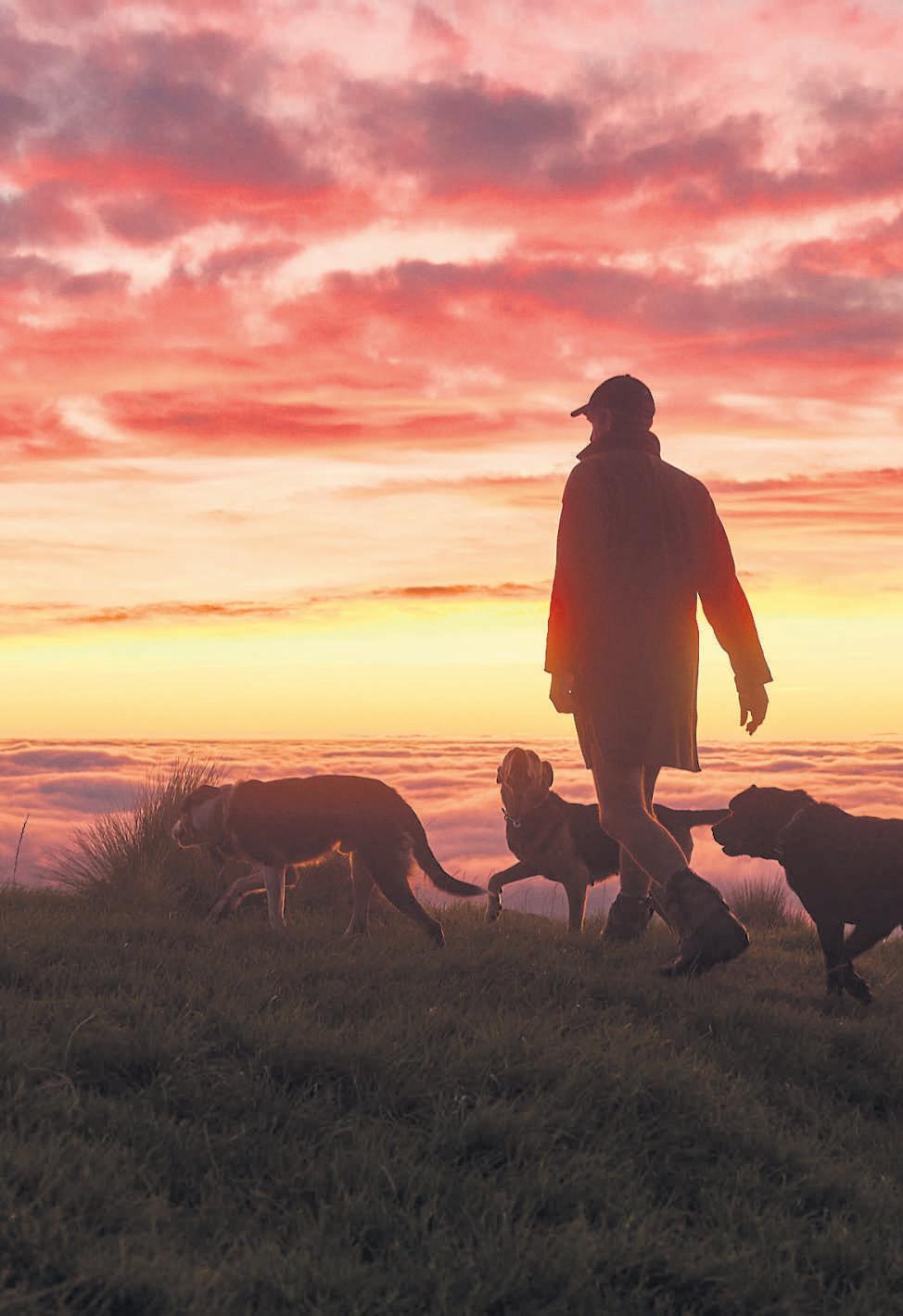




MAKING APOSITIVECONTRIBUTIONTOBOTHFARMING & COMMUNITYTHROUGHOUTTHE SOUTHISLAND.

They say imitation is the sincerest form of flattery. So apologies, glasshalf-full girl Emma Crutchley, but I’m going to filch one of your lines from the following pages The one about accepting the things you cannot change “because you could dwell on them forever andthey make you really unhappy ”

The world is a crazy place and it seems to be getting crazier by the day For us in New Zealand, a tiny island at the bottom of the world, there is little individuallywe can do about the devastating Ukraine conflict, the sideshow of American politics, or China’s economic weakness There is also little farmers and growers can do about weather, commodity prices although a shout-out to those fabulous southern on-farm businesses which arediversifying their wool clip into an arrayof homeand fashion products I’m looking at you The Clip, Ater, Lora & Flok, Mt Nicholas, Davaar and Co, West Ridge, and McIvor Hill to name just a few and everincreasing on-farm costs
But what we all can do is take a minute to focus onthe positives and raise a glass be it of Taieri pasture-raised milk, a Central Otago pinot noir, or a whisky produced from Southland barley to our Rural Champions; those who have chosen life on the land, with all the challenges that entails while alsomaking their rural communities a better place to live We can heed the words of mental health champion Sir John Kirwan, who officially launched the Otago Daily Times-Rural Life Rural Champions campaign at the Wānaka A&P Show in March by encouraging farmers to stop worrying about factors out of their control, share their issues, get off the farm, and do other things
Last year ’ s Year of the Farmer campaign was a resounding success, capped off by naming the indomitable Myfanwy Alexander, from Duntroon, as our inaugural Rural Champion
Since then, Myfanwy has continued her fabulous work in the agricultural sector, including launching a podcast with her friend Emily Walker called Ag in Conversation, and being named a finalist in the Dairy Woman of the Year I am excited to see what other great things are around the corner for her. It seemed that Year of theFarmer would be hard to top but, after making the call for
nominations for our 2024 Rural Champions campaign, they flooded in from the north and south of the South Island, and the east and west
This year, we added an additional category those who work in rural support; the often behind-the-scenes folk critical to thesmooth running of farming and growingoperations and we were delighted with the breadth of nominations
During these uncertain times, the stories captured in this publication are a salient reminder of all that is good about New Zealand’s rural sector Humble, hardworking folk who persevere among a myriad of challenges, adapting and innovating to sustain their farms, support their families, and contribute to the wellbeing of their communities
Now our judges Myfanwy,Rabobank’s acting chief sustainability officer Blake Holgate, a representative from Landpro, and myself have the hard task of deliberating
In October, one outstanding food producerwill be named our Rural Champion along with our champion rural services provider and we will again celebrate theircontribution to the rural sector I can’t wait
Sally Rae Business and Rural Editor sally rae@odt co nz




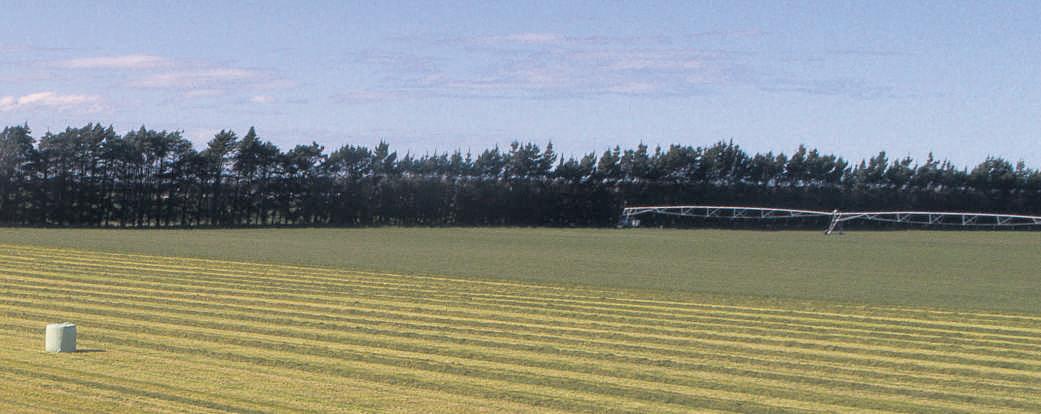

SIMON AND TRUDI WEBB Orchardists Otago
IThas been ajourney of setting strategic goals and reviewing objectivesfor Cromwell orchard owners Simon and Trudi Webb.
The couple have had to be brave and back themselves as they had avision to expand the family business over the years.
Simon and Trudi were nominated for Rural Champions for their vision and hard work expanding their orchard business.
Both sit on governance boards for the industry and Trudi is involved at anational level.
The orchard now grows 60ha of summer fruit and pip fruit on the outskirts of Cromwell.
Around 35% of the fruit is sold locally from their roadside shop and local supermarkets and the remainder is sent to the North Island where it is distributed to supermarkets under ahome brand.
The Webb family has been synonymous with fruit growing in the Cromwell areafor 110 years.
Simon’s great grandfather purchased the land in 1914 and each subsequent generation has taken the operation ahead with innovation and tenacity.
It isn’t an easy industry to be in; sensitive to drought, floods, economic disruption and everchanging market tastes
Simon’s parents John and Ainsley took over the orchard in 1974 and were responsible for a lot of development and innovation.
Simon said his parents showed great foresight and nerve to use water from overhead sprinklers to protect crops from frost damage; a

concept his grandfather Jack had been experimenting with since the 1950s.
Simon and Trudi met at Massey University while studying horticulture and they worked overseas before returning to the orchard in 2002.
Simon enjoyed 10years working alongside his father John on the orchard while also setting up alargecherry orchard nearby.
Simon said had his father not become ill and died within six weeks,he would likely still be ‘‘tinkering away at something’’, working on the orchard.
‘‘Dad was agreat mentorto have. Iprobably miss him more socially than for any other
reason.
‘‘ AFriday night beer or a Sunday cup of tea. We were pretty goodmates in that respect,’’ he said.
The business growth has been asteep and deliberate expansion with the couple setting themselves clear strategic goals.
When they moved home in 2002, 15ha of land was in orchard and they have since expanded this to 60ha.
Simon is astrong numbers man and enjoys analysing data.
‘‘You have to earn the right to grow abusiness and put yourself in agood position in order to do that.’’
An orchardist is also apatient operator; the first lot offruit
will come18months after atree has been planted but peak production will not happen until year seven to eight. Simon has been involved with the development of new varieties and has ensured the business is wellpositioned with fruit the market wants.
‘‘A lot has changed in that respect over the years.
‘‘Some people say the new varieties just aren’t as tasty, but Iwould tend to disagree.
‘‘We now have fruit that stays firmer for longer and I believe with asuperior taste. It means less wastage for both supermarkets where the fruit has alonger shelf life and, in the home, where the fruit will go the distance in alunchbox.’’
The orchard now has 10 fulltime workers yearround and employs 80 seasonal staff through the summer. Their three children are keen workers.
‘‘We focus on employing our local students when they are on school holidays and, when they go back to school, we will employ backpackers’’.
Simon enjoys taking on the students, ‘‘some of them are with us right through their teenage years. You see them come in as shy 15yearolds and six or seven years later they do their final season confident, hardworking adults. That’s apretty cool thing to be part of,’’ he said. Alice Scott







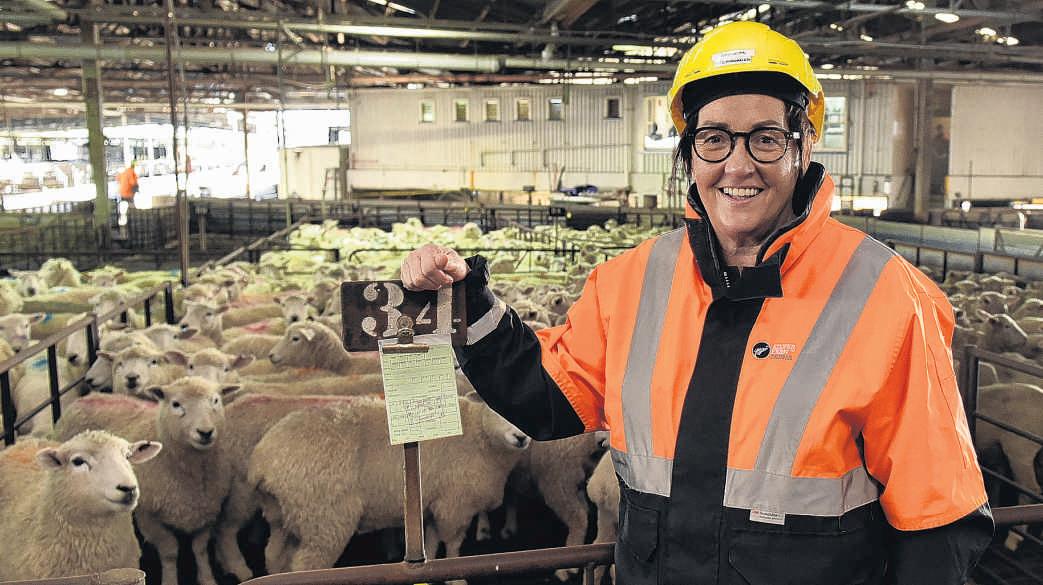
BRONWYN CAIRNS
Meat plant manager
Otago (although lives in Southland)
ITmight be 4.20am but Bronwyn
Cairnsnever doesn’t want to get out of bed and go to work.
Bronwyn is manager of Silver Fern Farms’ Finegand plant, just out of Balclutha, where she is responsible for aworkforce of about 1200 people.
Her nomination said she had made a significantcontribution to Southland communities over an involvement in the red meat industry which spanned more than 40 years.
That included site manager for Silver Fern Farms Waitane, near Gore, before she took on the ‘‘bigbeast’’—as she calls it —that was Finegand.
Bronwyn grew up in in Mataura, the youngest of four girls, and recalled tagging along with her father to his job at the freezing works where ahighlight was running through the plant to choose whatpiece of offal she wanted for her lunch.
After leaving school,she went straight to Southland Frozen Meats’ plant in Mataura in 1984 to work as a laboratory technician. After five years, she embarked onher OE and, on her return, joined WaitaneMeats Ltd in quality control in 1992.
She moved up the ranks as technical officer and then technical manager, production supervisor and then production manager before being appointed plant manager in 2017. Initially Bronwyn was asked to help out at Finegand for afew weeks when the previous manager left. But then she realised she ‘‘actually couldn’t leave’’ ‘‘I feltlike Ineeded to stay here, Ifelt they needed someone to care for them and to be there to help.’’ So after six months of managing both
sites, she became apermanentfixture at Finegand, travelling eachday from her Gore home to theplant, a significant employer in the Clutha district.
Such alarge force came with responsibility, something she keenly felt. She was fortunate to have an ‘‘amazing’’ team around her; there was acommon thread of people all wanting to be on the same journey, to see improvements and to work for Silver Fern Farms because they were proud of what they did.
She acknowledged at times her job was ‘‘bloody tough’’ and also that she had ‘‘incredibly bad imposter syndrome’’.
It had taken hard work and some sacrifices to get where she was. There was afair bit of stubbornness involved as well.
She was passionate about what she did and also keen to share the opportunities available in the industry. Her own journey had seen ‘‘fantastic’’ wider support and training.
Her nomination said she was known for creating strong team cultures within thesites she has managed and ensured thecompany supported many local goodwill initiatives.
Abeliever of getting out in the district and telling people that Silver Fern Farms wasthe employer of choice, that included introducingthe Local Legend initiative.
So does it consume her life?
‘‘I guess it does you do have to be that way inclined,you have people working 24/7 so switching off isn’t easy,’’ she said.
While pleased with what she had achieved at Finegand, she said it was still work in progress and she wanted to see out what she had started. —Sally Rae


HAMISH HILLS Dairy farmer Tasman
HARNESSING the sun’s energy has goneto the next level for Hamish Hills and his dairy farming family who have developed a solar farm with just under 3000 panels at Golden Bay.
After three years of planning and logistics the solar farm was turned on last year.
‘‘We did it before it was cool, if that makes sense, andquite early on.
‘‘The reality of it was that we knew absolutely nothing about solar. At first we were goingto do it for the effluent pump at our cow shed that we were relocatingfrom Marlborough and Istill actually haven’t put it in.
‘‘The idea of the solar farm started around the kitchen table and the old man and I were having ayarn at the end of the driveway and thought could we go bigger? My parents,John and Betsy, have done alot of different things as well and have worked bloody hard to allow us to be in aposition to take this on.’’
He rang up the local network company and asked how large an operation they could put in and after afew weeks was told 1.2MW.
The 2.5ha site ended up producing 1.43MW which supplies the energy needs of just over 310 houses.
Chugging through the resourceconsent process and even aunion strike on an Australian wharf delaying their solar panel shipment failed to derail the project.
Months of work dealing with power retailers, the council and bank —including over Covid lockdowns —were needed to get it over theline.
Mr Hills was working in construction management in Australia when he returned in 2017 to take on the farm with partner Monique and their children Georgia, Macy, and Austin.
The chosen site is on heavy, wet soils, less than ideal for farming and perfect for asolar farm.
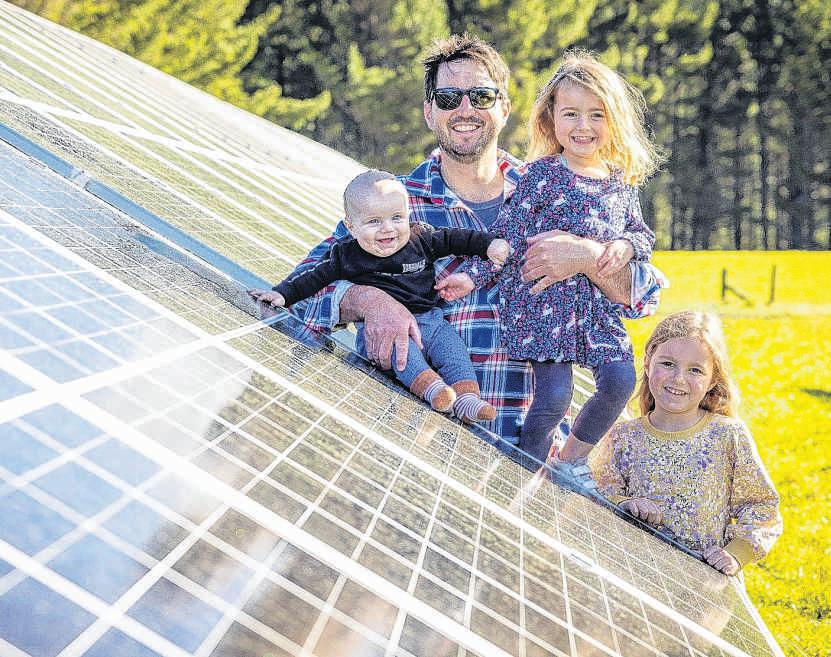
6.
The Hills farm 280ha where they milk 370 cows, rear young stock including replacements, breeding bulls and beef animals, with another 500ha consisting of 350ha in regenerating native bush, and forestry blocks.
The people, animal health and land are the first priorities, with milk production ‘‘fourth down the line’’. Milk quality is high on the list. Onceaday milking was introduced in the 201718 season and they have managed
to maintain their production on alowinputsystem, he said.
The early adopters of technology who liketonudge farming forward pride themselves on their small carbon footprint.
All their power goes to the main grid and does not feed their own needs because of their location, although a 20KW system is about to go into the cow shed.
Mr Hills insistedontheir own electricity connection being 100% renewable and
South Island Farmer Council is
B+LNZFarmer Councilpartners with B+LNZ’sExtension Team to champion farming excellenceacrossNew Zealand. Asa keyvoice for farmers,theyprovide vital advicethatshapes B+LNZ’sdecisions. Learn more at beeflambnz.com.
switched to acertified company to achieve this.
‘‘To get areturn on investment everything has to be viable otherwise it is not sustainable. We really care about the environment. There’s apoint in time when you have to look at your kids in the eyes and farming cops alot unfairly when there’s some bloody good farmers in New Zealand leading the way in initiatives, and Idon’t think they get alot of credit for what theydo.’’
Mr Hills won the Nelson Tasman Chamber of Commerce environmental award.
He sits on the steering group for the Farmers Across Marble Aquifer catchment group and is an executive director for the Rural Service Centre, a country store and vet clinic. On top of cocoaching his daughters’ under6 rugby team, he cocoaches the senior Takaka side and is vicepresident of the Takaka Rugby Club. —Tim Cronshaw

AMY WATTS Veterinarian Otago
‘‘ANexceptional human with alove for the rural communities she serves.’’
That endorsement refers to veterinarian Amy Watts,who took the plunge in February 2021 to launch her own veterinarypractice —abrave move in an industry dominated by large businesses.
Not only did Central Otagobased Black Sheep Veterinary provide veterinary support to the rural sector, it alsofilled a rural support role —‘‘like so many trusted advisers, veterinarians and identities do in isolated communities’’
‘‘Amy’s willingnesstoact not only as an experienced veterinarian but often as a friend and confidant to people is something that shedoes not take for granted.
‘‘She has anatural ability to be an ear for both farm issues and thosewhich fill atypical rural lifestyle. This has led to a reputation as acommunity identity of huge value and a character alike.
‘‘This unofficial role of ‘rural support person’isalso fitting forthe nature and model of Black Sheep’s business Because of Amy’s trusted individual relationships with each client, farm manager and staff, they feel they are able to openly discuss rural issues such as health and wellbeing, financial pressures, employment issues,animal wellness, Mycoplasma bovis, flooding, droughts and the impacts of these on their lives. This resonates immensely with the farming community.’’
It was also abusiness that went ‘‘above and beyond for the client.
‘‘There is often baking left in a

letter box if times are tough or as athank you, athoughtful Christmas gift for those loyal clients with ahandwrittencard or atrusted voiceonthe end of
the phone when it’s all abit much.’’
Originally from Hawke’s Bay, Amy took preveterinary science classes at Massey University but
failed to get into the vet course.
So she worked on adairy farm and travelled for four years, before returning to vet school. She worked for veterinary
businesses in Southland, South Canterbury and Otago before launching Black Sheep. She works mainly with sheep, beef and deer and also does some dairy and horse work.
Amy loves the Central Otago community, where she was well supported by some amazing clients. She acknowledged it was abig risk for them to leave large veterinary companies and give alittle one ago, and she found that ‘‘pretty humbling’’.
‘‘I never chased business, it’s their choice. I’m not a salesperson,’’ she said.
While Amy had worked in some amazing teams in the past, her team now was her clients.
Getting invited to astaff Christmas party was also humbling, because that meant it was that step beyond ‘‘just being the person who comes in and helps’’.
It was achallenging, stressful, fun and exciting industry to be involved in and Amy quipped that most people knew her surname as The Vet.
The nomination said she was often on the sports sidelines cheering kids on in her local community and she regularly volunteered behind the bar at the local rugby club.
Black Sheep also supported local businesses, rural farming events, facilitates and organises workshops for relevant farming matters, including drench resistance information sessions, and recently held amidwinter social event in the community hall as away to get people offfarm for an evening.
She is adirector on the Deer Industry New Zealand board. She is also one of 11 New Zealand Members of Australian and New Zealand College of Veterinary Science in Medicine of Sheep, and she is apast president of the New Zealand Veterinary Associationdeer branch. —Sally Rae
DAVID ECKHOFF
Technical field officer Otago
AVID exemplifies the oldfashionedvalue of customer service and puttingyour customerfirst.’’ David Eckhoff, asenior technical field officer based in Farmlands’ Mosgiel office, treats each farmingclient’s business like it his his own, something which is appreciated by his clients.
‘‘He is constantly looking for ways to help improve our farming practicesand look for new opportunities to grow our farming business,’’one grateful farmer said.
David tried never to tell or suggest anything to his farmers that he would not do to his own farm

Beetthat David Eckhoff’s role is all about helping farmers grow.
‘‘I think if this was my paddock, or my sheep or cows, what would Ido?’’ He was raised in Balfour until he was 10 when the family moved to Roxburgh. After working for Ravensdown for seven years, initially in Southland and then North Canterbury, and astint in rural banking,hereturned home to manage the family farm at Coal Creek.
That property was later sold to enable succession and he and his wifePip spent time in both Wanaka and at Berwick before
moving to Dunedin.
At Farmlands, his role was all about helping farmers grow; the main aspects were around agronomy, nutrition and animal health and he also dealt with infrastructure like fencing and water schemes.
‘‘I spend alot abit of time
preparing for visitsand finding the best possible solution no matterwhat the subject may be —crop protection, dairy detergents, stock water systems, seed varieties, fencing systems and so on.
‘‘I take the time to find the best pricing from suppliers and within the Farmlands network of stores which involves lots of phone work.
‘‘We want the same thing which is what’s best for the farmer.
‘‘I want to be part of their business for the next 20 years, not just asneaky cheap deal today,’’ he said.
David spent alot of time challenging his farmers around what they were doing, particularly around animal health programmes to make sure they were ‘‘getting the best bang for their buck’’ and using the right products.
With clients ranging from largescale to much smaller holdings, and from dairy farmers on the Taieri to dryland blocks out the back of Middlemarch, it was about helping them grow the
best crop for whatever suited their farming situation.
Many clients placed ‘‘freerange’’ trust in him. It was an important role and one that could be quitestressful at times.
‘‘Everyone relies on you to do your job and you want to do the best job for them. Iwant to grow acrop I’m proud of,’’ he said.
While David missed the physicality of farming, he had been known to jump on a handpiece and help crutch lambs and he was aregular fixture in the tailing pen.
‘‘It’s agreat way to have some fun withyour farmers. You’re not just there talking to them about grass seed or chemicals, you’re out there helping them and doing it with them. I’m quite capable of doing anything they are doing.’’
He enjoyed helping train new reps, saying the hard thing about onfarm was that everything only happened once ayear and it had to be ‘‘right that once and everythingwill flow from there’’.
‘‘I love what Ido, it’s the closest thing Icould get to farming,’’ he said. —Sally Rae
NATALIE CAMERON
Sheep and beef farmer
Southland
ATLimehills School in Southland, handson learning is taken to anew level.
And while she is quick to deflect any praise, most of that can be attributed to local farmer and motheroffour Natalie Cameron, who has been the driving force behind breathing new life into the school’sfarm.
‘‘Natalie puts alot of time into this weegrouptoensure they are learning as much as they can. Part of the way she does this is by using her own connections with rural professionals so that they are able to come in and help out with teaching the kids that wee bit more. Natalie herself puts in alot of work both with general maintenance as well as with looking after the sheep and chickens. She fully deserves all the kudos and recognition for all of the hard work she puts in,’’ the nomination said.
Natalie and her husband Dougal are sheep and beef farmers and, as well as being involved in the couple’s own farming operation, Natalie puts

time, effort and resources into helping grow the Limehills School farm group.
The school has asmall farm the group uses for learning opportunities and it had somewhat fallen through the cracks in recent years until Natalie took over at the beginning of last year.
It’sabout 2ha and runs 16 sheep at present. Natalie wants to bump that up to 20 given the

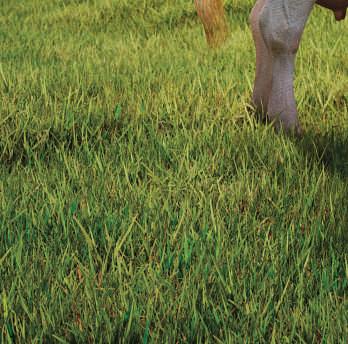
free fertiliser supplied by Ballance has resulted the grass pumping along —while she is looking at replacing the school’s chooks for the spring. Eggs are sold by the group at Friday assemblies, giving them money to buy feed, and the children also collect food scraps at the school forthem.
This lambing season, the children are responsible for checking the lambing ewes,
while Natalie is on hand every morning and night for additional oversight.
There are 12 children in the group and the older children train the younger ones. At the school’s pet show day, the year 7pupils ran an open day and had questions in every paddock.
Every child in the group had a turn of setting up abreak fence, whichgave them asense of


achievement and responsibility, as it was ‘‘their farm’’, not hers and she was happy to facilitate anything they wanted to do, Natalie said.
There was afield trip to look at tractors and atrip to alime works, which included some science work, and the children designed and made their own boot rack —with alittle help from aschool dad —sothey did not leave their boots lying around at the school.
With her own children ageing out of primary school at the end of this year, her days were numbered, Natalie said. She hoped there could be a committee to share the load and she could work with the group occasionally and still ‘‘keep afinger in’’.
While acommitment had been involved, ‘‘the more we get it sorted, the better it is going’’ and it had been ‘‘real fun’’ and rewarding, particularly when she could see their brains engaging.
‘‘It’s cool to see how far they’ve come,’’ she said.
She also looked after junior rugby at the DLS club and it was the connection with people through her community involvement that she loved, she said. —Sally Rae


Sheep and beef farmer
Otago
MAUNGAWERA farm owner
Phillip Hunt was nominated for his tireless voluntary work for various organisations over the decades.
He was president of Otago Federated Farmers from 2015 to 2018, involved in the initial startup of the WAI Wanaka catchment group and the Freshwater Improvement Fund which was linked to the catchment group.
He was also involved with Tb Free NZ (Otago committee) from 1995 and chaired the committee for three years from 2005.
He has followed in the footsteps of his grandfather and father as a committee member and president of the Upper Clutha A&P Show, been part of the St John area committee for more than 20 years, now also on the South Island board, and most recently he has become atrustee on the Otago Rural Support Trust.
Committing to these organisations often meant time offfarm and evening meetings, which Phill said would not have been possible without the commitment to their farm and livestockfrom his wife Lizzie Carruthers.
‘‘Lizzie is afar better farmer than I am, Ihave no qualms admitting that; she won the national ewe hogget
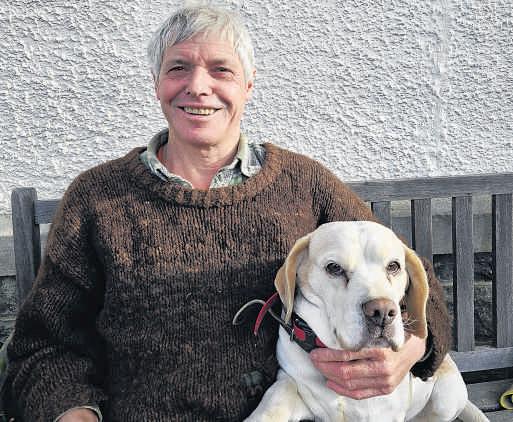
competition in 2011.’’ Lizzie grew up on afarm in South Otago and when they first began farming together, they engagedthe
In the ever-evolving landscape of agriculture, Superior stands as abeacon of innovationand scientific excellence, committedtoempowering farmerswith tailored,cost-effective fertiliser solutions.Atthe forefrontofthis commitmentistheir cutting-edge InnovationHub,spearheaded by Dr.PhuongNguyen, PhD. With afocusonsoil fertility and plant nutrition, Superior areredefininghow fertilisercan enhance productivity,quality andsustainabilityfor every farm.
Science-Driven Customisation for Optimal Results:
Superiorbelieves everyfarm is unique,and so areits nutritional needs. Their approach is rooted in scientific research, ensuring thatthe fertiliseryou useisprecisely whatyoursoil requires. Superior deliver custom-blended solid fertiliser programmes thataddress thespecific challengesand opportunities ofyour land.
By analysingsoil compositionand understanding the exact needs ofyour crops and livestock, Superior create blendsthatensureall essential elementsare present in the rightamounts and proportions. This bespokeservice not only maximises crop yieldsbut also enhancesthe overall healthand productivity of your livestock, laying a robust foundation foryourfarm'slong-term success.
services of afarm adviser.
‘‘He helped us separate out our roles based on ourpassions and skill sets and it’s been great, we’ve been agood
Superiors’commitmenttoinnovationdoesn’t stop at customisation. TheInnovation Hubisconstantly exploring newwaystoimprove soil health and optimise fertiliseruse.Thisongoing research and development means theSuperior team arealwaysready to offeryou the most advanced and effectivesolutions available.
“We've been workingwith Superior severalyears nowand through their customised approach have seen improvements in plant, soil, and animal health.
By having Tim&Superior partof our team, alongwithour vetand nutritionists,wecan tailor the whole picture to best drivethe qualityand quantity of pastures and crops thathas ledtoan increaseinmilk production.”
Luke Kane -Westholm Dairies
TimAdcock Otago/Southland 021 418224
Gabriel Stauffer CentralOtago/Western Southland 029 276 0303
team ever since.’’
There have been many highlights in his voluntary roles over the years and the work Phill was involved in with the Animal Health Board in 1995 has been one highlight that stands out in his memory.
‘‘Communication is so important in any organisation.
‘‘In the early days, we needed to get landowner buyin and collect alevy which funded possum control.
‘‘Back in the early 90s, we had about 300 farms with Tb [tuberculosis] in their cattle herds, now we only have two or three in the region.
‘‘It’s been hugely satisfying work and it hasn’t always been easy; in every organisation there are differences of opinions and there can be conflict at times.
‘‘When it becomes unworkable, it’s a matter of focusing on finding asolution and having ahearty but respectful discussion.’’
His work as atrustee in the Rural Support Trust has been another important role in recent years.
‘‘Making aliving off the land is a lonely existence and the profile of the trust has increased in recent times, it’s gone from being the ambulance at the bottom of the cliff to being extremely proactive with initiatives that get farmers connecting with each other and sharing the mental load.
‘‘It’s avery rewarding role,’’ he said.
—Alice Scott

ScottEckhold NorthOtago/West Coast 021 418699
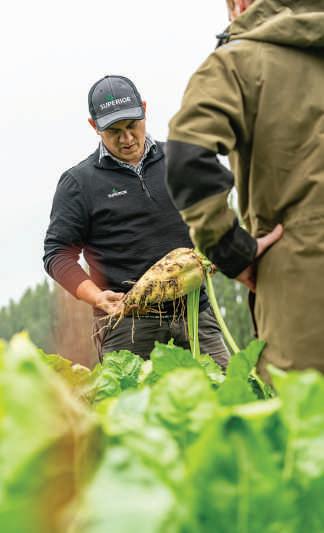
NICK AND ALEXIS WADWORTH
Sheep and beef farmers
Southland
IT’S along wayfrom Japan to the rolling hill country of Southland’s Otapiri Gorge.
But one of Nick and Alexis Wadworth’sthree key values at Bare Hill Farming is ‘‘kaizen’’, the Japanese business philosophy that focuses on continuous improvement. That sits along courage and stewardship.
Their nomination lauded the couple’s‘‘huge’’ presence in their community groups, contributing to catchment groups, training and local initiatives.
‘‘Regenerative and sustainable focus but with a common sense bootsontheground mindset,’’ it read.
Bare Hill Farm spans2000ha but only 800ha is effective. They run about 3700 ewes, 1200 hoggets and 300 breeding cows
From Taranaki, Alexis met Nick at Lincoln University, where she did acommerce degree in agriculture.Nick had been working as an engineer before his tertiary studies
Then they went their separate ways; Nick overseas and Alexis to start abanking career in Waikato before they ended up in Southland. Nick wanted to give farming acrack on his family property about the same time abanking jobarose for Alexis.
They eventually bought the farm from Nick’s parentsin 2020. Their 3yearold junior shepherdess Addison —who wants to be atractordriver when she grows up —isthe sixth generation of the family to work on the farm.
The couple’s purpose statement was redefining possibilities together and Alexis said the ‘‘together’’part was key, particularly during the early part of their career, using the community and the people around them, their farming team and each other to achieve that —‘‘not just doing the same old, same old, and expecting things to be different’’.
Community is important to the couple and they try to limit themselvestothree volunteer
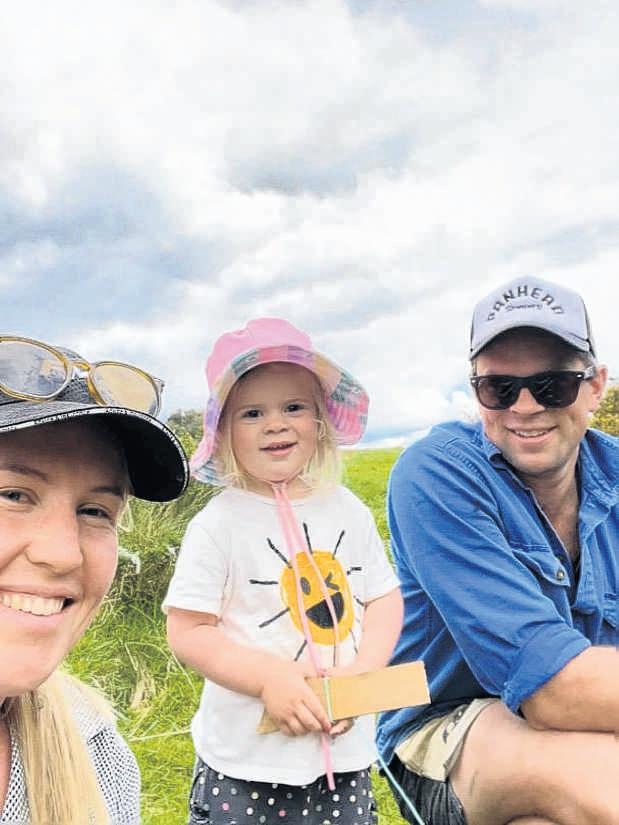
Educating the next generation Southland farmers Alexis and Nick Wadworth with their daughter Addison (3).
PHOTO: SUPPLIED
thingseach. Nick is onthe southern South Island Ospri committee, the Otapiri Hall committee and the Browns Sports Day committee, an event where Addison won the baby
show. He was also involved with organising the Kuana farm discussion group and was overdue to organise acatchup, visiting different properties.

umpire coordinator at the Central Southland Netball Centre and amember of the centre’s management committee. She is also an umpire and coach assessor. And she seemed to ‘‘just jump on and off relevant working groups as they pop up. Anything from Thriving Southland through to Beef +Lamb to local women in afarming group. I tend to pick these up as I’m able’’.
Sustainability was as much about their own farm performance and environmental sustainability as it was about asustainable community and they wanted to ensure there was ‘‘something there’’ for their daughter in the future.
‘‘We’ve both been so fortunate to have some pretty amazing mentors or people willing to jump in and share their knowledge with us. If there’s aspects we can offer different skill sets it’s about doing it as much to give back as anything else,’’ Alexis said. They had afarm Instagram page which started to keep friends and family up to date and led to developing an ‘‘amazing’’ online community which they shared the highs and lows of life on the land with.
Nick enjoyed being selfemployed and liked the quote ‘‘farming is what you make of it’’. They were creating their own destiny, making the calls as to what direction they wanted to take their operation and it was always the challenge that got them out of bed in the morning, his wife added.
Alexis may have been aselfdescribed import to the area but she loved life in the South and its rural communities.
Both were involved with the Makarewa headwaters catchment group, which Alexis chaired.
Alexis is also heavily involved with netball; she is



‘‘A really unique group of people live down here and just get it. They’re looking out for each other, whether dropping off food to someone who’s had ahard time or donating bales or whatever to help somebody through a rough patch. Just that understanding and supporting each other, it’s never a problem. Ithink that’s pretty special.’’ —Sally Rae





JOCK AND PIP FOSTER
Sheep and beef farmers
Canterbury
ASparents,Jockand Pip Foster know how importantisisto foster young people’sgrowth and development.
The North Canterbury couple have always employed younger junior shepherds on their 1400ha property, near Scargill, and historically taken them through to stock manager level or manager level in many situations.
While treating them as part of their own family and sharing meals with them, the couple also encouraged their young workers to get offfarm, join sports groups and become part of the community.
Both enjoyed helping people develop their skills and, in recent years, that has extended to Growing Future Farmers, a farmerled vocational workforce training programme.
With their own children having left home, the timing seemed right to become involved with the programme and they now had their second GFF student.
The Fosters, who were the Silver Fern Farms 2023 Plate to Pasture winners, run asheep breedingand finishing operation, and alsofinish cattle.
Jock leftschool and went fencing before studying at Lincoln and then going shepherding. He had a manager’s job at Hawarden when his father died from cancer and he and Pip came home to the family farm in 1996.
Jock never had astrong desire to come home just because it was the familyfarm but, from afamily point of view, it was nice to be there. He simply enjoyed farming and it was areal privilege to be on the land; whether he was farming in North Canterbury or elsewhere, it would not worry him.
Pip, who grew up on afarm at Hororata and met Jock in her last year of school, trained as a nurse. Their three children, aged between 22 and 26, were all involved in farming.

The couple felt very fortunate that their children shared the interestinagriculture and it led to some great conversations with them about the sector.
‘‘Wehave three farm advisers that don’tlive here; it’s really lovely,’’ she said.
Jock described the property as a‘‘pretty typical’’ North Canterbury farm, with a balance ofhill country and mix of downs and flats. Irrigation development had been a ‘‘gamechanger’’ and had given
them the ability to be in control of selling decisions. It also gave them access to contracts they would not have previously have access to and meant they could commit to supply.
The farming philosophy was fairly simple —‘‘eat the grass when it’s growing’’. All areas had climaticchallenges and their challenge was the dry and they endeavoured to have astocking policy that allowed flexibility.
Jock felt positive about the longterm future of farming.
While there would always be ‘‘tough bits’’, there were already some green shoots during what had been a challenging time.
While their Plate to Pasture award included the quality of their stock and meeting their contracts, it also covered their philosophy around their staff, and their environmental commitments and community commitments.
Jock is chairman of the local community board and Pip
organises the local Anzac Day service each year. Pip described it as ‘‘just atypical small community where everybody has acrack at everything’’, including at the school and sports.
The Foster farm has a6km boundary with the Hurunui River while the Waikari River also runs through the middle of the farm. Protecting waterways had been astrong focus for the couple. —Sally Rae


MEGAN AND LAURA WHYTE
Sheep, beef and cropping farmers
Southland
THEY’RE sistersinfarms.
Megan (23) and Laura (22)
Whyte, who work on their family’s sheep, beef and arable property at Otama in Southland, have been described as ‘‘the most hardworking, wellrounded skilled women’’.
master. They always put themselves outthere to give any task ago.
‘‘At their age, they have achieved skills that most farmers take years and years to
‘‘Whetheritisdriving the stock truck or aheader, moving sheep with their own dogs, or ramming posts and putting up
netting, these girls can do it. They have shown that women straight out of school can have a career in farming that can take you all over the country and world,’’ their nomination said.
towork in and get stuff done’’. They could have ayelling match in the yards and then decide, later in the day, to go to the pub together, Megan added.
Asked whether they were stock or machineryoriented, Megan said she probably floated in the middle, enjoying both aspects of farming, while Laura was probably keener on the stock side.






Both sisters considered heading to university but then they saw some of their contemporaries heading away for tertiary study before returning to the farm to do the same job that they were doing, while also saddled with student debt.
Megan spent three years working for her uncle on a sheep and beef property between Balfour and Dipton.
Asked what advice they would have to offer other young women keen on farming, Megan said it was just amatter of giving it ago —‘‘as long as you’re determined to learn, there’s plenty of people ...toteach you.’’



She also did aninemonth stint in Western Australia, seeding, harvesting and cattle mustering.
Laura went to the United States last year and taught waterskiing at aCamp America summer camp.
Asked how the sisters worked together on the home farm, Megan laughed: ‘‘depends on the day’’.
The sisters’ social circle was also very similar and Laura candidly admitted there were ‘‘good days and bad days’’.
‘‘Working with family ...you getpast it because you are family and you know you’ve got
The sisters were both involved with Waitane Young Farmers Club, and had held officebearing positions. That had been agreat way to network with people while holding events like car trials, and giving money to charity, was rewarding to give back.
Laura is also akeen netball player while Megan plays rugby for the Southland Hinds. The pair were full of praise for the support of their parents, although their father could sometimes be abit fast with his teaching and they had to tell him to slow down, they laughed.
Sally Rae
JO ROBINSON Flower grower Otago
JORobinson is one popular lady, judging by the number of nominationsreceived for her and her business Scrubby Gully.
One nomination said Jo played aleadership role in the New Zealand smallmedium floricultureindustry,where she championed sustainable and ecologically friendly practices and, importantly, created afriendly and open atmosphere where growers could discussissues affecting their businesses.
‘‘I discoveredJothroughher New Zealand Flower Farmers Facebook page,which has been an invaluable resource and community for me personally and Iknow for many,many others as well.
‘‘Jo donates her time willingly to managing this community because she is incredibly passionate about helping grow the small but thriving local floriculture industry in NewZealand.’’
Jo lives about 7km out of Alexandra on an 8.2ha property, where she grows flowers and fruit to produce preserves. She runs workshops to teach people how to grow and use their flowers
The Facebook page, which has more than 1000 followers, was to help educate growers ‘‘it’s more about them being able to learn from our mistakes’’ —many were on smaller blocks where they were trying to make asidehustle or find their way in arural community. Many sold rurally, either at farmers markets or at their front gate.
Brought up in Dunedin, Jo spent alot of time in Central Otago as achild. After heading overseas on her OE, she quips how she ‘‘brought back aPom’’ —and the couple lived in Auckland where she had a landscape businessand her husband was anational yachting coach.
Keen for land to grow things, they moved to Central more than 20 years ago. She had a passion for helping people
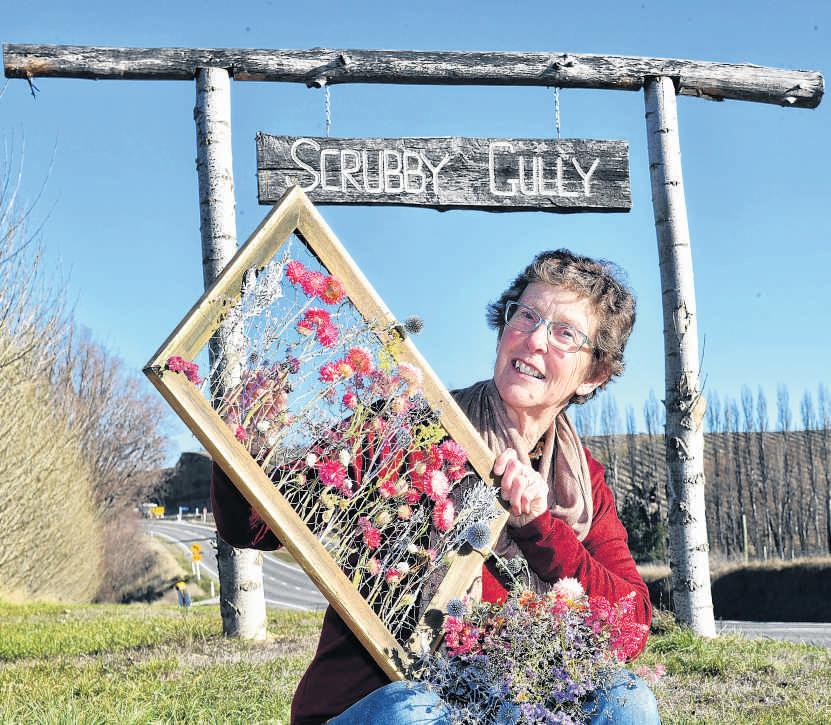
grow things, whether flowers for abouquet, or food for the table.
One of her favourite things was selling flowers by the bucket load to event organisers, or to people who wanted to ‘‘do their own thing’’. Affordable weddings was a particular favourite and the pleasure she gotfrom people wanting to make their own

bouquets and arrangements.
Sometimes she helped with making the bouquets. Many came the day before the wedding and sheloved to see the joy they got from the experience.‘‘What Idoin20 minutestakes four hours but they love it and they are then connected to what they have done,’’ she said.
Everything done on the
property was about protecting and enriching the soil. She endeavoured not to use spray; if the soil was healthy, then the plants were healthy and would fight any pests or disease and she did not use floral foam.
Growing workshops were literally growing as people learned how to grow from seed. She loved the education
side and connection, talking to community groups about what they could do in their garden. With the high cost of living, people were wanting to grow things themselves if they had the space. Even if they were able to grow araspberry cane, or some strawberries, they felt like they were contributing to what their family was eating.
—Sally Rae




STEVEN BROWN Apiarist Canterbury
ADHD and dyslexia never stopped Steven Brown from building a3000hive business exporting honey around the world and athriving beef operation.
The apiarist has learned to channel them to his advantage and often employs and gives advice to young people dealing with them.
‘‘I’m horrendously dyslexic and have ADHD, so Idon’t really write much and I’m an appalling speller. On my father’s side everyone is an academic, so I’m the odd ball on both sides of the family who doesn’t have a degree.
‘‘On saying that, I’m good in business and have, or had, more energy than anyone else which is my problem with ADHD —Ijust can’t stop. For beekeeping this is amazing because there’s always another bee box to lift.’’
Springbank Honey is run by a team led by himself and wife Tracy, with the businessbased just outside of North Canterbury’s Cust.
They employ about 10 people over the winter, with staff numbers doubling in the summer when the honey is harvested, mainly from their farm, Glenburn, at Lees Valley and neighbouring properties.
On the 3700ha farm, rising to 1650m at the top, hives are placed in valley microclimates and closed native blocks on the Emissions Trading Scheme (ETS), while 400 head of Angus and Hereford cattle and deer are grazed.
‘‘It is hard country —it’s very good when it’s nice to you and a hard mistress when it’s bad.’’
Mr Brown said the bees were the main reason they bought Glenburn, because of its many stands of manuka and beech forest and tussock lands.
North and east facing blocks miss the harsh nor’west winds, while microclimates out the back provide aprotected environment.
Ablending and processing business run by the couple at Oxford produces 800 tonnes to 1000 tonnes of honey ayear, for

themselves and other producers.
Mainly manuka honey is shipped around the world, exported to the likes of the United States, Germany, United Kingdom,Japan, Saudi Arabia and China.
Clover, thyme and honey dew honey also goes offshore, but manuka honey provides more than 95% of the overall value.
Some of this is sold under their own brand to the US, but most of it is shipped or airfreighted to packers who put their own or other brands on it for resale.
‘‘We are pushing really heavily our own brand purely into the US. we want to increase our direct sales of
bulk honey and our packed honey for our value return for beekeepers. The amount of money we are getting is tiny and the retail price hasn’t changed, but the wholesale price has crashed, so Ihave been trying to increase our margin.’’
Their own honey and cattle operations complemented each other by eveningout income streams, as beekeeping was seasonal. Many of their team members alsoenjoyed switching from honey to cattle work.
Incomefrom bees going on blocks of land being retired to the ETS went into openingup more Glenburn land for cattle, with plans to increase them to


1000 head. Raised on aRangiora lifestyle block, Mr Brown served a‘‘sink or swim’’ apprenticeshipafter leaving schoolat15.
His father’s best friend was one of the largest queen bee raisers in the country and they shipped him to the West Coast and Whangarei to learn the trade. Three years later he bought out the partner of his mentor, Max Holden, in Oxford.
Mr Brown said he would change nothing as he had an amazing life beekeeping, working in the processing factory, going to sales meetings and trips around the world, living and breathing honey.

He has learned both conditions are astrength more than aweakness and to channel them so he has control in his life.
Being abalanced person was good for his family and business growth, while he has been told his dyslexiahelps him think outside the square and come up with anew business idea every day.
‘‘I really love ADHD employees and regularly hire lots of them and mentor on how to turn it from anegative into a strength.
‘‘ It’s astrength as long as you know how to use it and it took me years for it to become this amazing superpower.’’ —Tim Cronshaw

BLAIR FIELDES Banker Otago
WHEN Blair Fieldes went to his job interviewfor the Rural Bank, it was afairly simple process.
It was standard practice to ask four main questions; whether he was off afarm, what his parents did, what sport he played and at what level, and where he wanted towork in New Zealand.
It took about 10minutes and no CV was required. Soon after, he was off to Invercargill which was to prove agood training ground with great peopleand understanding farmers.
Previously, he attended Lincoln where he graduated with acommerce degree in agriculture.
His father was an accountant in Gore and he spent alot of time on afriend’sfarm at Charlton growing up, whetting his interest in the sector.
Blair worked as a relationship manager specialising in agri for 43 years, most recently with ANZ, before retiring in July.
His nomination said he had learned his craft by time and experience, building strong relationships while still being a challenger and trusted adviser at the same time. Respected by his clients and professionals alike, he had great industry knowledge
His careercould have been curtailed in his younger years when he went on an overseas adventure for ayear, on leave without pay.
He was in North India and the year was nearly up, sohe wrote to his manager asking for another 12month extension. If denied, then the letter was to be treated as aresignation.
He then phoned his father to check if anything had arrived in the mail from the bank and, extension confirmed, he continuedhis travels.
Three days before the next year wasup, he arrived in Auckland and hitchhiked through the North Island before phoning his manager, arriving in agrubby old Tshirt

and pink trousers. He was to start as soonashecould.
During the time the Rural Bank was getting prepared for sale, there were stressful discussions. He recalled the discount meetings when the
bank was writing off debt with creditors sitting around the table.
Ahusband and wife were sitting at the table, along with about 10 creditors, when the husband looked up, passed out
and fell off his chair, crashing on to the ground.
In adaze, his wife looked down at her husband on the floor, looked up at the creditors and shrugged her shoulders.
‘‘We were acting more like
the emergency services do in major traumatic events ...it’s really after the fact it really hit home how traumatic it was.’’
From Canterbury, Mr Fieldes moved to various positions in Southland, including as a branch manager in Tuatapere, aplace which was ‘‘lots and lots of fun’’.
That was where he learned a very valuable banking lesson, of being about to divide yourself between being good friends with somebody and then the next day having aclientbanker relationship.
In latter years, Mr Fieldes has been based in Central Otago, living on aproperty steeped in history at Bannockburn. While they build anew house on the site, the more than centuryold sod cottage his greatgrandfather lived in when he first cameto gold mine in New Zealand from the Shetland Isles will remain.
What he particularly enjoyed about his career was the people; being part of afarming business and seeing succession discussed and the successful movement of an asset from one generation to another, and also being part of growth within a generation.
The area had avariety of different farming and horticulture types, from intensive irrigated properties to extensive operations, and knowledge and skills were required to converse with clients.
Mr Fieldes has done alot of tramping, climbing and mountaineering and used to be in Alpine Cliff Rescue and Search and Rescue. He also used to be ascuba diving instructor.
Since moving to Central Otago and being further from the water, he had taken up hunting. In his retirement, he had a‘‘wet weather job’’ —a big shed and aSeries II Land Rover to get back on the road. He was looking forward to more hunting —‘‘filling the freezer and other people’s freezers’’ —learning to fly fish, and also kicking back and relaxing in an area he described as the couple’s ‘‘happy place’’. —Sally Rae





BRIDGET MCNALLY
Dairy farmer Otago
BRIDGET McNally took some convincing to agree to be part of this publication.
She wasn’t sure her nomination was a‘‘worthy contender’’, as she felt she was not doing any more than anyone else in the industry.
Luckily Bridget’s husband James gave her the push she needed and encouraged her to ‘‘just get on with it’’.
Bridget’s nominationcame for her commitment to her community and the North Otago dairying community.She has worked as the engagement officer for the North Otago Sustainable Land Management Group (NOSLaM) and has now transitioned into avolunteer role on the steering committee.
She was also on the committeewhich broughtthe South Island Dairy Event to Oamaru in 2022. Bridget gave a lot of her time to others, cared deeply about her community and deserved recognition for being awarm and empathetic person whom people gravitated to, the nomination said.
Acquiring astrong work ethic on her parents’ sheep and beef farm near Waimate as a youngster, Bridget boarded at St Kevin’s College in Oamaru; it embedded in her astrong sense of service to others and communities.
She studied communication studies at the University of Otago, completed agraduate diploma of teaching at Canterbury University and then went into ateaching career in North Otago.
After the couple got married, succession planning prompted them to convert the McNally family’s sheep and beef farm at Maheno to dairy in 2007.
Now into their 17th season, they have continued to develop the business and added further blocks to the farm. They now milk around 900 cows.
The couple have three schoolage children and when her youngest was old enough, Bridget took on the role of calf


rearer.
This year she is teaching three days aweek at Maheno School, ‘‘so Ihave demoted myself to just helping on the
Sense of service Bridget McNally is passionate about community initiatives that are inclusive and make adifference. PHOTO: SUPPLIED
days whenIamnot teaching’’, she said.
Hosting the South Island Dairy Event was amajor feat for Bridget and the committee.
The conference attended by more than 400 delegates is usually hosted in alarge city.
‘‘We proved asmall rural town could pull it off and it went
really well. People loved Oamaru and all that it offered.’’
Bridget agrees she often tends to be an ear for people when they are going through challenging times.
‘‘It’s not lost on me just how much of aprivilege and responsibility that is. We all have our own battles going on —noone is perfect.’’
Governance roles are not on Bridget’s radar —she prefers to be part of committees and working groups.
‘‘I am probably more of a doer than aplanner. Idosay yes to things which can sometimes be my downfall as I can spread myself thin abit at times. Ijust see aneed and think ‘oh Ican sort that out’.’’
She concedes those small things often snowball into much larger projects.
‘‘I am motivated by initiatives that are inclusive and make adifference,’’ she said.
An example of this is the Maheno Junior Netball Club. In 2019, when her eldest daughter Charlotte was 7, the club had not had junior players for afew years. Along with some other keen mums and support from Maheno Senior Netball they restarted the junior club and now in 2024 it has over 70 children playing.
As aqualified speech and drama teacher, Bridget has used this skill to empower the next generation through sourcing funding and working in some local schools delivering SpeechNZ oral communication assessments.
‘‘I am passionate about public speaking and teaching those skills early to our rural kids, before the fear sets in.’’ She has furthered her skill by recently completing a certificate in teaching professional speaking and would love, when time allows, to one day teach adults, particularly migrant communities.
‘‘I love to build confidence in people and seeing how far they can go in life with that extra spring in their step.’’
Alice Scott



HANNES AND LYZANNE DU PLESSIS
Dairy farmers Southland
HANNES and Lyzanne du Plessis arrived in New Zealand in 2003 with a baby, asuitcase and $20 in their pocket.
The couple —who met at university in South Africa slept in front of the fireplace for sixmonths until they could afford abed and wore clothes from the Salvation Army.
When their car needed tyres to pass its warrant of fitness, Hannes asked his boss if he could take two snow tyres from the silage stack.
‘‘Our story is one with really humble beginnings,’’Lyzanne says.
But the couple never saw the move as abig sacrifice. Rather, as Lyzanne recalls, it was a ‘‘dream come true’’.
‘‘For us, it was an adventure .a new life.Itwas so amazing to be here andsee what the country offers, see what we could achieve here.’’
And it was that passion for the dairy industrythat had given them ‘‘everything’’ —abusiness, hope and afuture. Now that future was open to their sons so they could do whatever they liked.
‘‘We know where we come from, how desperate we were for just an opportunity. For somebody to trust us and believe in us.’’ Hannes started as afarm assistant near Te Aroha while Lyzanne picked up night shifts at alocal supermarket.Hannes progressed through the industry because he educated himself He knew how to research things thanks to his university studies —hehas adegree in horticulture and agricultural economics —and he picked out articles to read and he asked questions.
He would go to DairyNZ discussion groups and strike up conversations. When he was appointed herd manager, he would offer to help with other tasks once milking finished so he could learn other skills. Within five years, he had gone from dairy assistant to the couple being lowerorder sharemilkers.

In 2011, the family shifted to the South Island and, the following year, the couple won the Southland Farm Manager of the Year title in the New Zealand Dairy Industry Awards, winning the award for human resources in the national final.
Their passion was employing staff and educating them in a way that set them up for success.
Now contractmilking at Woodlands, they had employed many migrant workers along with Kiwis.
Coming from sucha multicultural country as South Africa had given them the edge to work with and understand different cultures and they loved
having that diversity among their team, Lyzanne said Their love of education paved the way for the couple to homeschool their three sons but it has alsoextended outside their farm gate; the couple founded their own training business, AgriTeachMe, and partnered with Agricademy last year to bring affordable and effective agricultural training to Southland.
Whether it was skills needed for tractors,farm bikes,health and safety, effluent or pasture management —‘‘you name it’’ it was apparent that it was needed, and nobody was filling that need.
Often there was alanguage issue with migrant workers and even though they did receive training on farm, alot got missed because theydid not understand it
The couple are involved with the Nepalese and Filipino groups in Southland and, as they began the training, theysaw how much of aneed there was.
Now Hannes is keen to approach machinery businesses to seeiftheywould help provide atractor for training. Farmers often were not training them in driving tractors because they were so expensive, but that created ahealthand safetyrisk.
Educating migrant workers
came naturally to them.
‘‘We know where we’ve come from and how we got there and the importance of training. Both of us are really good at talking to agroup of people and giving them training. It’s something we love doing and we know the value of it, being the employers ourselves, having trained staff that can actually do the job,’’ Hannes said.
Sometimes, workers later returned with their families, to show the couple their children and tell them their achievements. That brought something into their heart, Lyzanne said. —Sally Rae



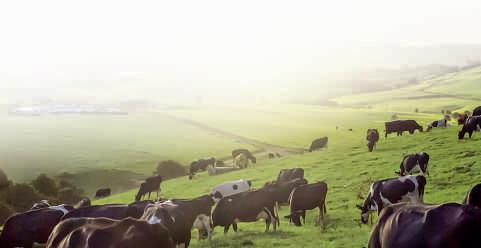



























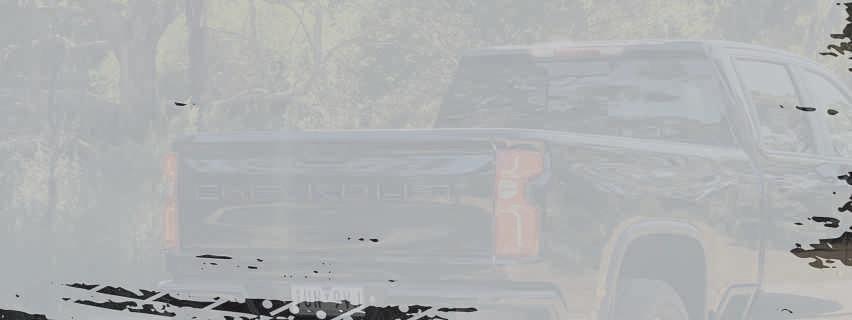







IROSHANA KULATHUNGA Dairy farmer Southland
HE’S aqualified veterinarian in Sri Lanka and now Iroshana ‘‘Shan’’ Kulathunga is working towards becoming registered as avet in New Zealand.
Passionate about the dairy industry, Shan and his wife Sachini are now permanent residents and are happily settledinSouthland with their two young daughters
After graduating from the University of PeradeniyainSri Lanka, Shan spent his first year working as avet and then got a job as the extension manager for aFonterradairy farm in Sri Lanka.
It was learningabout the New Zealand dairy industry, along with adesire to upskill in the industry, that were the drivers behind him wanting to come to New Zealand.
In Sri Lanka, the industry was very small scale; 10 or 20 animals or even less was considered amediumsized operation while one or two was small,and it produced about 40% of the country’s requirements.
In 2018, Shan immigrated to

New Zealand andhis wife and eldestdaughter came the following year. Their second child was born in Southland. It was not too difficult to acclimatise because he did come with adairying background and knowledge. What did take some getting used to was the weather, having been used to temperatures of more
than 30°C throughout theyear. Shan started as adairy farm assistantand, over time, was promoted as afarm manager. He has been on thesame Balfour farm since 2019 but had stepped back from being a manager to have more time for studying to reach his vet registration goal.
His plan is to eventually start
aveterinary practice.
The nomination said he was friendly and hardworking. He also had astrong knowledge about the dairy industry in New Zealand. He was very helpful, and shared his knowledge with others.
Kulathunga has no regrets about leaving his home country of Sri
Shan said he loved the area and Southland and the family had embraced the Kiwi way of life. He and Sachini —who owns a small homebased cupcake business called Sprinkles —are respected members of the region’s Sri Lankan community. Shan loves playing cricket in his spare time. —Sally Rae
Didyou know that NewZealandhas thehighest rate of melanoma in the world?Every day, around 7New Zealandersare diagnosed with melanomait’s the most seriousformofskincancer anditcan quicklybecomedeadly.1,2
That’s whyMoleMap’sprovenskin-mappingsystemisdesignedtodetect skin cancers such as melanoma early–whenit’s most treatable.3
We check. And double-check.
With MoleMap youget two setsofexpert eyes examining anymoles ofconcern:atrained Melanographer andanexperienced specialist Dermatologist. Fewerscars. Fewerscares.
Because MoleMap can more accurately identify melanoma, there is lessneed to surgically remove benign(harmless) moles.1
Early detection makes adifference. Earlymelanoma detectionoffers aup to 95% chance of survival within 5years.That’swhy it’s always worthchecking.


ROCKY CORMACK and JANELLE DAVIDSON
Farm support business Southland
THEIR mottois
‘‘whatever the farmer needs, we can do it’’.
Kelvin ‘‘Rocky‘‘ Cormack and Janelle Davison found a gap in the farming sector to establish asmall business called The Gofer, providing relief staff for farming businesses.
The couple, both from farming backgrounds, have a small team of efficient, reliable and experienced staff whohelp out on demand with anyone struggling to find workers, cover shortterm relief for sick or accident leave, or fill in while farmers take awelldeservedbreak with their families.
Ironically, the couple have sacrificed time with their own families to help afarmer in need.


Whether it’s relief milking, calf rearing, tail trimming, shearing, spraying, small digger work, tractor work and much more —The Gofer can do it all.
The business started in June 2021 with two clients and grew from there through word of mouth.
Rocky, atruck driverwho had previouslymanageddairy farms, had been in the office arranging stock logistics when he got the idea


Talking to farmers every day, many sounded stressed, often not having anyone to help load or unload stock.
Janelle had been relief milking between and before jobs for years.
The overwhelmingfeedback from clients was gratitude.
‘‘They can’t thank you enough, especially when we do farming minding and the whole family can go away together. The wife comes back and is nearly in tears thanking

us,’’ Rocky said.
They also provided work for university students on holiday and sponsorship to small communities.
The Gofer covers Otago and Southland and if acall comes from further afield they will work out if it is feasible or not.
The idea was to franchise the Gofer to expand its reach. They were keen to get more people and investors on board to grow it to its full potential, Janelle said. —Sally Rae
STEVE AND TRACY HENDERSON
Dairy farmers
Southland
WHEN it comes to social media, it’s easyto share acurated version of ourselves —the sunny days, wheneverything has gone to plan,and aworld where all the anglesare good.
Southland dairy farmers Steve and Tracy Henderson prefer to ‘‘keep it real’’,using their own social media platform to share the realities and learning curves of abusydairy farming enterprise.
The couple were nominated for Rural Championsfor their ‘‘positive and informative social media platform Legendairies’’
The nominationalso said they had been finalists in multiple dairy industry awards, and were asoughtafter employer in the area as they offered their workers asupportive worklife balance.
‘‘They also open their farm to school visits, helping the children understand dairying in the community. Like any farming familythey have their ups and downs, and they show some of this on their social media. They are allround great Southlanders deserving of this award,’’ it said.
Tracy hails from asheep, beef and deerfarm in Taumarunui in the North Island. After meeting at LincolnUniversity, the couple eventually settled back in Steve’s home province of Southland and began ajourney up the dairying ladder.
‘‘I started the Facebook page just to share what was happening in my world with my friends and family up north. It seemedtogarner good feedback and has grown from there,’’ Tracy said.
‘‘I don’t tend to share the sunshine and rainbows of farm life.Things are not always pictureperfect and Ithink people who follow the pagelike that. Curveballs are being thrown at farmers every day and for us, it’s about sharing this side of the business while keepingitpositive and talking about the solutions to overcome whatever challenge we have had,’’ Tracy said.

From dealing with an outbreak of rotavirus in their calves,dumping milk due to a turnedoffvat or mitigating wet weather events, they only ever got positive feedbackover their challenges from thecommunity that followed thepage, Tracy said.
‘‘When you are new to the industry it can be very overwhelming, and the page tends to reassure people that they are not alone on their journey.’’
‘‘S happens, but there’s always away through it,’’ Steve said.
The couple havebeen on a steep upward trajectory over the
past 20 years with agoal of farm ownershipand they are soon to realise thisgoal.
‘‘We 50:50 sharemilk 850 cows in Awarua, where we currently farm, and just up the road we lease a630cow farm we will purchaseintwo years’time, which we currently have contractmilkers on.’’
Paying it forward is an important value of theirs.
‘‘It’s good to giveopportunities to others wanting to get astart in the industry as that’s how we got going’’, Steve said.
Dairy awards and nominations have been acommon occurrence for the couple over the years.
‘‘In the early years, when we
were trying to get the good dairy jobs, it was so competitive, so any nomination or win was a good feather in your cap on the CV. These days we don’t tend to enter any of those kinds of awards, but we have been nominated by others for afew, which does make you feel good. We must be doing something right,’’ Steve said.
In 2022 the couple won the MPI Good Employer Award. Fair and flexible rosters are important to thecouple, and they make sure they recognise and reward their staff for doing a good job.
They started their working relationship off ‘‘on the right
foot’’ with avideo on their Facebook page which showed their workplace and explained the expectationsofthe job, Steve said.
‘‘It’s agood drafting gate. You tend to only get those that genuinely keen on the job as they have agood idea of what they’re coming into.’’
Outside of their businesses, the couple are also active community members. Steve is chairman of the Southern Field Days and on their local school board of trustees and Tracy is an active member of the PTA.
‘‘It is apretty full and busy life, but it’s an awesome one,’’ Tracy said. —Alice Scott



QUITE simply, Adam Kreisel and Steve Hill are good buggers.
The North Canterbury friends and keen hunters are behind Hunters4Hope, an initiative which provides venison mince to feed those in need via the Rangiorabased charity Hope Community Trust.
As Steve says, it is ‘‘almost a responsibility of every person to be a good human’’.
The two men got to know each other through their partners working together and discovered they had a

mutual interest in hunting. They began hunting togetherand they discussed whatotherhunters were doing with their surplus venison, questioning if there could be asystem established to collect surplus meat, pool it together and donate it to the trust as venison mince.
They gained approval from New Zealand Food Safety, agreement from the trust to accept the mince, they bought asecondhand commercial mincer at abargain price and placed freezers aroundthe community for hunters to contribute their excess protein.
They also got support from the North Canterbury Hunting Competition and, in June last year, theyreceived 50 deer carcases from hunters at the weighin and, with the help of family, friends and members of the local Swannanoa Fire Brigade, all 50 were skinned and bonedinone day.
The next day, after four hours of mincing and slicing steak, 870kg of venison mince and 52kg of venison backsteak was delivered to the trust.
In September, Adam and Steve, and several NCHC committee members, volunteered to help prepare and serve aCommunity Kaimeal at the trust, using donated venison from the 2023 competition.
Now two hunting guiding companies have come on board, adding to the amount of venison harvested, and those businessesappreciated the meat was utilised.
About 500kg of mince was supplied each month and the nomination described the pair as ‘‘hidden rural champions’’, along with the other volunteers involved in the project. They enjoyed giving back to the community, while also balancing their own businesses and family life.
Steve reckoned Hunters4Hope was definitely scaleable, with potential to be replicated in other regions. The most important thing was that those involved had the same mindset ‘‘people not doing something to get something for themselves but giving back because they can’’ —and one of the rules was that noone could profit from it.
Children involved in the North Canterbury Kids Hunt gave meat to Hunters4Hope, which was done in a special batch making 275kg of mince. It was delivered to the trust with the help of North Loburn School and the children helped unload the meat. That was also away of getting the next generation thinking about how to give back, he said.
Feedback had been ‘‘incredibly humbling’’ and it was rewarding to see quality protein ‘‘going somewhere’’, rather than just in ahole. They were now also getting contacted by farmers who were having problems with feral deer.
Adam’s father and agroup of his older mates volunteered to help out with the initiative and had been dubbed ‘‘Dad’s Army’’. —Sally Rae
PAUL AND TRACI PATON
Sheep and beef farmers
Otago
Astrong Christian faith combined with life experiences have reinforced Paul and Traci Paton’s intrinsic desire to pay it forward and do good in the world.
Paul and Traci were nominated for Rural Champions as acouple who freely give so much of themselves.
The couple host Christian youth camps on their farm every year and Paul has been on the board of trustees both at Palmerston Primary School and at East Otago High School.
He is also atrustee of Glenorchy Lodge, an accommodation facility owned by East Otago High which has been undergoing major development and upgrades in recent years, fundedbythe school community.
The couple also take young people into their home, teaching farming and life skills on their sheep and beef farm at Morrisons in the Pig Root.
Paul is quick to point out his offfarm commitments would not be possible without his mother Allison and brother and sisterinlaw Mark and Liv Paton.
‘‘We work as ateam here and they will pick up my slack when Iambusy with other things.’’ Traci is from the United States. The couple met at Lincoln University while Traci was here on an exchange.
‘‘I chased her over to the States afterwards,’’ he said.
Paul interned for ayear at the Denver Rescue Mission followed by nine years at the mission’s farm in Colorado. A Christianbased facility, the mission helps people overcome addiction and homelessness.
‘‘I came home adifferent person. It gave me an awareness of how it can be for people who have experienced major trauma in their lives they can look the same from the outsidebut inside they feel completely different.
‘‘ It made me realise what is

it forward ...
overthe years.
important in life. It’s not material things —itislove and people.’’
Paul reflects on aprose in the Bible which summarises his view on life.
‘‘It says who makes you different from anyone else? What do you have that you did
not receive? It’s about being grounded and knowing you are not above anyone else in this world.’’
The couple have four adult children. Each has excelled in their studies and sport.
While boarding school would have been an easy option due to their isolated location and sporting passions, the family stuck with the local high school.
‘‘Some people think it is education that makes the person, which Ibelieve is wrong.
‘‘It is character that is important and surrounding them with that love and support and not outsourcing it. Ialso believe asmaller school offers its own advantages with leadership and other opportunities that amight not present themselves at abigger school.’’
Paul credits the huge support they have received from other local families for their children’s success.
‘‘We’ve had some amazing people in our lives who have driven ourkids around to things and encouraged them to go further with their sports.’’
Paying this kindness forward, the couple often host gateway students for work experience and over the years they have opened their home to young people who are going through atough time.
‘‘Teaching new skills brings a sense of confidence which these people can take through life. You employ the character; you teach the skill.’’
The Christian youth camps are also hugely popular each year. It’s no holiday —they learn how to rough it abit and gain afew life skills along the way. They all seem to leave with great memories and a newfound confidence.
Despite not coming from a farming background, Traci has embraced an isolated farm life.
She has overcome acancer scare and embraced a healthier lifestyle since. She also breeds labradoodle and retrodoodle dogs and takes great pride in turning out quality family pets. —Alice Scott




ALISTAIR BIRD Sheep and beef farmer Canterbury
WHEN North Canterbury farmer
AlistairBird set up aYouTube channeltopromote everything good about farminghewas thrilled to get 100 views for the first video.
‘‘Then we got 50 subscribers and we were stoked and it’s just sort of grown organically,’’ he said.
‘‘We haven’t had massive jumps or peaks, it’s just been steady. We are sitting around 13,200 subscribers now with views for an average video of 6000 to 8000.’’


Homemade footage on daily farming lifehas caught the imagination of afarflung audiencestretching to Australia, the United States and the United Kingdom, as well as local followers
The topviewed video had 186,000 hits for agrumpy cow at calving time trying to chase him down.
‘‘You try and recreate avideo or think ‘I like this one and it will do really well’ and it doesn’t and the ones you think are abit average tend to go well so there’s no rhyme or reason about what will do well or not.’’
If Mr Bird, known as Kiwi Farmer, had to put his finger on the channel’s success







he would put it down to acandid portrayal of farming.
He and his wife, Genna fell into being YouTube creators when afew videos about their farm accommodation never fully fired on aFacebook page.
So they gave the the online video sharing platform acrack.
‘‘We were trying to encourage people to get on farm and see our world by opening our doors.I’d been watching some of the American farm Youtubers for awhile and thought ‘why not give this ago?’.
‘‘At the time there were only acouple farmers in New Zealanddoingthe same sort of thing.
‘‘We thought we could show our perspective and try and promote Ag from our point of view and show people we are not environmental terrorists as farming was getting apretty bad rap in the media then with the environmental stuff.
‘‘Noone was telling the good we were doing. It was all negative and we decided to try wartsandall what we go through and bring our side of the story out there.’’
Three years later and theyfilm and editvideos weekly in between running a soontoexpand agritourism accommodation venture and their dryland sheep and beef farm, The Grange, between Oxford and Ashley Gorge.
He is often the one in front of and behind the camera and she has been known to make the odd cameo appearance, as does one of their daughters, with another daughter wanting not abar of YouTube life.
Weekly videos lasting 20odd minutes are sometimes stretched to twice aweek and sponsors liking their story have got on board.
The Grange near Ashley Gorge ranges from flats on the bottom end of the farm to steep, hard, nativehill country scaling
up to 880m above sea level. The 560ha breeding farm is partnered with anearby 65ha flat dryland lease block for wintering and early lambing on August 1 to get their offspring away to the works before Christmas.
Split lambing is delayed on the home farm until September 25 as they can get late snow storms and to reduce market risks.
Angus cows roam the hills with regenerating native and planted tree blocks set aside for the Emissions Trading Scheme.
Acanopy camping site for the highend market will be followed soon with hutstyle accommodation next to awaterfall for families with tracks being developed for bush walking and horse riding.
Multiple revenue streams outside of protein are needed to gain value from the land and keep the ‘‘lights on’’, he said.
Mr Bird has developed athick hide against faultfinding keyboard critics, but finds loyal followers soon put the record straight if anyone gets out of line.
Adeep well of informed and wellmeaning advice canbetapped into via the comments and apersonal spinoff from the YouTube involvement is getting out of his comfort zone.
‘‘I’m an introvert and it’s really helped with my communication skills. Putting myself out there is something I’ve been working on since Iwas 15 so it’s just a facet of that really.
‘‘There’s atoandfro of information so it’s not onesided. Iask people for advice and it’s pretty cool in that regard.’’
Occasionally he delves into mental health messaging as his father is involved in Rural Support Trust in Marlborough, but is conscious to tread lightly as viewers cometothe channel to be entertained. —Tim Cronshaw

MCILROY Agronomy specialist Canterbury
THEY CALL him Scones. That’s because Canterburybased agronomy specialist Scott McIlroy actually started his working life as abaker, ajob he loved ‘‘every single minuteof’’.
And he can still pull on his apron.
After the Canterbury earthquakes, when his old boss at Darfield Bakery was struggling with power outages and staffing, he rolled up his sleeves and helped out for a couple of days.
Scott acknowledges he never thrived in the education system
—‘‘me and school probably didn’t see eyetoeye to be fair’’ —but what he did have was a work ethic and enthusiasm for what he enjoyed doing.
He had been working at the bakery afterschool cleaning up when he suggested the boss give him abaker apprenticeship. He was there for about five years and qualified as abaker.
Mad keen on rugby —he played his first game for Darfield at 5and later racked up 251 division 1games for the club —hewould burn the candle at bothends; up at 2am to go baking, then play rugby before the postgame socialising sometimes until the early hours.
Hespent two years on his OE, where he did some baking, played rugby and travelled the world.
Returninghome, he got ajob in the CRT (now Farmlands store) store in Dunedin and later amove to the Darfield store, having always had apassion for farming and the rural services industry.
He did alot of listening and learning and, when his very experienced boss sadly died at work one day, he was toldhewas ‘‘it’’ —‘‘I was either going to sink or swim’’ —and he worked hard to establish whatheneeded to do to service clients.
In 2015, Scottjoined Hazlett
which, at thatstage, did not have an agronomy arm. That division was created ‘‘out of nothing’’ and the company now had about seven agronomy reps on the road and it was ‘‘doing very well’’.
Scott’s nomination said he ‘‘goes above and beyond for his farming clients, making sure theyhave everything theyneed to operate their businesses to the best of their ability’’.
In spring, it was not unusual for him to leave home at 6am and finish his day with zero emails in his inbox at 10pm or 11pm. Family was important to him he and his wife Lauren have two children, Ella and Jed —and he would head intohis office after they went to bed.
While his work life was busy, that did not stop him from putting his hand up in his local community. Heisonthe board of trustees at Sheffield School.
Now strapping for the Darfield senior rugby side, he spent about 12 years on the committee and was president for two years. He also did the Coast to Coast teams event withhis twin brother.
Asked how he managed his own wellbeing, Scott said his work kept him in check.
He enjoyed going to work ‘‘every single day’’ and it was almost not really ajob for him. Hegot to talk to and help great people and that was something that kept him fresh and motivated, he said.
Rural folk were ‘‘pretty well grounded’’ and they understood he was not amagician —ifhe was, he could change the weather and interest rates —but what he could do was make sure that what he did was to the best of his ability and that might mean they could get abetter price for their product or increase their yield. Sometimes it was about providing a reassuring ear and he was well aware of how difficult it was farming.
He was also involved with the social side of work, organising cricket games and afew beers, saying it was ‘‘good to get together and laugh’’. —Sally Rae

JACKAND KATE COCKS
Sheep and beef farmers
Lake Wakatipu
WHEN it comes to farming, resilience isn’t just atrait— it’s away of life. Jack Cocks, asheep and beef farmer from the shores of Lake Wakatipu, knows this all too well.
Jack and his wife Kate, of Mt Nicholas Station, were nominated for their positive influence in the rural industry despite the challenges they have faced.
In 2013, Jack suffered abrain aneurysm. He then survived a cardiac arrest, went into coma for two weeks, spent atotal of eight months in hospitaland had 15 major brain surgeries over a period of six years.
‘‘This sounds pretty bad; it was, and Iamincredibly lucky to be alive,’’ hesaid.
It was aslow process of learning to walk and talk again and there were many health setbacks along the way. In 2021 Jack underwent the Kellogg Rural LeadershipProgramme. His research project looked at how resilient farmers thrive despite adversity.
Through his research Jack discovered three crucial strategies among resilient farmers: clarity of purpose, strong social connections and a keen awareness of personal wellbeing. These insights formed the foundation of his resilience model —apractical tool tailored for the rural sector to move beyond survival and thrive.
Jack is regularly invited to be a speaker at events to share his story and research findings. Most recently he was invited to be akeynote speaker in Saskatoon, Canada at the International Farm Management Association Congress.
‘‘That was alittle nerveracking as they had flown me all the way out there, but it was really wellreceived.’’
Jack said the ultimate display
ofresilience in their situation was exemplified by hiswife.
As his health improved, Jack was able to share the workload at home and he enjoyed teaching his children while Kate was out on the farm or in the office.
Being 100km from the nearest school, the couple’s two children have been homeschooled through the Correspondence School for their primary and intermediate years.
‘‘We share the teaching through the week, and Ireally enjoy spending that time with the kids. We are now very close because of it.’’
Kate is also chairwoman of the High Country Accord which is a notforprofit trust advocating for the rights of pastoral leaseholders in the South Island.
‘‘There are only 160 high country leaseholders left so we’re abit of an endangered species. The trust’s role is about being aunified voice. The 1.2 million hectares ofhighcountry pastoral leases have become somewhat ofapolitical football in recent years, so we advocate for these families and the iconic land they are stewards of.’’
Jack and Kate work alongside equity partners Phil and Latisha McMurray —all four have defined roles in the business. They have recently diversified their farming business with the introductionofMtNicholas Merino producing woollen garments, throws and knitting yarn.
‘‘It’s important to us, as New Zealand wool growers, that we support the wool manufacturing industry that is still operating in New Zealand,’’Kate said.
She said it was hugely rewarding to create aproduct they could get enjoyment from and share with others
‘‘People want to buy New Zealandmade. Weare stillvery early on inthe journey, but it’s been agreat way to add diversification while still being closely linked to our core business of producingbeautiful, sustainable wool.’’ —Alice Scott








JAN KEELING Dairy farmer Otago
‘‘ANamazing community woman! Without her, Duntroon would fall apart!’’
That was the opening line to the nomination for Jan Keeling, who plays akey role in the wellbeing of the small Waitaki Valley village.
Aradiographer by trade, Jan grew up on afarm at Duntroon with asense of community instilled in her. Her parents were heavily involvedinthe community and, when she had her own children, she didnot think twice about involving them.
‘‘Our kids still do communitystuff because they see it as normal,’’ she said.
Married to dairy farmer Geoff, Jan describes herself as atraditionalist, or afarmer’s wife, and said she was privileged enough to not have to work on the farm.
Her community work was away of having apurposeand setting an example for her daughters. She also enjoyed it and liked to seeacommunity held together.
Arguably much happier out of the spotlight, Jan was quick to stress that she was not doing it alone —‘‘it’s ateam effort, because these things have to be a team effort’’.
Saying she was too selfconscious to be aleader, Jan loved working as part of a team. An enthusiastic gardener, the village’s communitygarden —which she set up in acorner of one of the couple’s paddocks —was her happy place.
Aboutfive volunteers were there regularly over the summer and excess vegetables were put in a‘‘share shed’’ in the village.
With an avid dislike for food waste, she encouraged others in the village to
add their excess food. At one stage, one of the volunteers was taking vegetables from the community garden to Whalan Lodge resthome, up the road in Kurow.
Jan’s involvement with the historic Nicol’s Blacksmith Shop began coincidentally at the time she was reading the Little House on the Prairie books to her girls about 2008 and it led to them discussing the ‘‘olden days’’ in Duntroon and what it would have looked like.
‘‘I knew nothing about blacksmithing, but I’m abit of apyromaniac,’’ she laughed.
Later, when her daughters were at boarding school and she had some more time, she decided to learn how to forge and for several years could be found working in the forge at weekends.
‘‘It’s so cool. It’s abit like any art form anyone can do it, but to make something it’sjust practice. It’s such a powerful feeling being able to bend steel and make it bend.’’
She is atrustee on the Nicol’s BlacksmithHistoric Trust which was established to preserve the building and history of one of very few accessible authentic working village blacksmiths. She keeps an eye on the St Martin’s Anglican Church, aprominent building in the town and visited regularly by tourists. The Keeling family mows the church lawns.
She has also been adriving force behind making the local hall more usable.
Jan quips thatwater qualityisher hashtag and the family has undertaken widespread plantings on their property. They have also undertaken aplanting project with Ngai Tahu and Meridian Energy by aMaori rock art site, and she is involved withthe Duntroon wetlands, including predator trapping. —Sally Rae
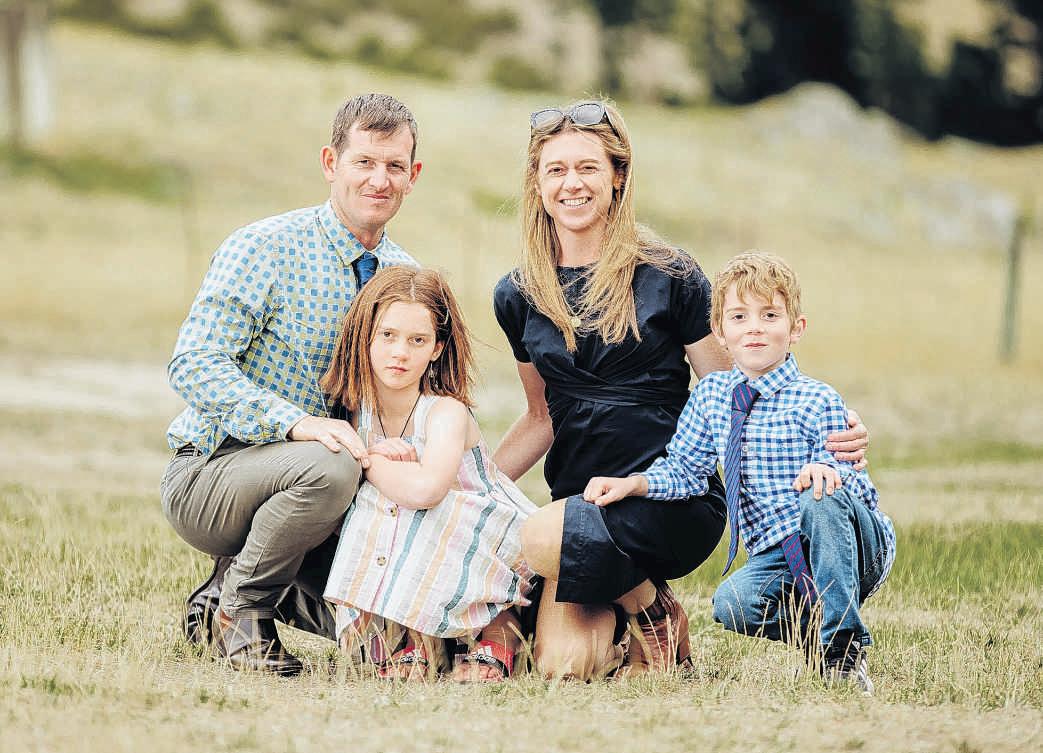
EMMA CRUTCHLEY
Sheep and beef farmer
Otago
‘‘EMMA takes leadership seriously and does it for the better of rural communities even if this means being apart of decisions that may not be a popular view at the time. These type of leaders are the true heroes of our communities.’’
So reads the nomination for intergenerational sheep and beef farmer Emma Crutchley, from the Maniototo, who leant her weight to the relaunch of National Lamb Day in February, alongside her other farming and community duties
Emma acknowledges stepping into hard conversations, when she knows it is the right thingtodo, can be ‘‘bloody uncomfortable’’ —‘‘it feels like I’m cursed to be unpopular at times’’— but she can sleep at night knowing she has stucktoher values and has not just taken the easypath which would be to stay silent.
Emma is all about enabling positive change and enjoys working with positive people on positive projects.
‘‘I really enjoy getting stuck into stuff —even if it’scomplex stuff—that enables healthy rural communities and the
primary sector.’’
She particularly enjoys big wicked conversations around freshwater, where it was often very hard to see solutions. She loves relationships she has built almost outside the sector, where those threads of common ground could be found and built on, for it was sometimes those hard conversations ‘‘where the gold lies’’ Emma is adirector of Irrigation New Zealand and was previously involved in governance of local irrigation schemes.In2020, she cofounded and worked to establish a$6million multistakeholder catchment restoration project, Tiaki Maniototo, for the Upper Taieri Wai catchment group.
AKellogg Rural Leadership scholar and AgriWomen’s Development Trust Escalator graduate, Emma farmswith her husband Kyle Hagen, on her family’s sheep and beef farm at Puketoi. An agronomist by trade, she came home to the family farm,which totals just under 3000ha, in 2009.
Life was also aboutstriking balance with family and the couple’s two children, Evelyn and Reuben, were priorities. As she chased her children around school and sporting
activities, she reflectedhow her dogs were not getting the work they used to. Sometimes the best thinking time was that time spent in the hills with her dogs.
‘‘I have an incredible amount of gratitude for the people Iget to work with on a lot of these topics. It just gives you so much energy. The people that have supported me have given me so much momentum towards supporting others that are coming through. Ilove doing that where Ican.
‘‘There’s such an incredible amount of awesome people just getting on with solutions,’’ she says. It was about accepting the things that you could not change —‘‘because you could dwell on them forever and they make you really unhappy’’ —and it was also ‘‘not just all about the hui, it’s about the doey.’’ —Sally







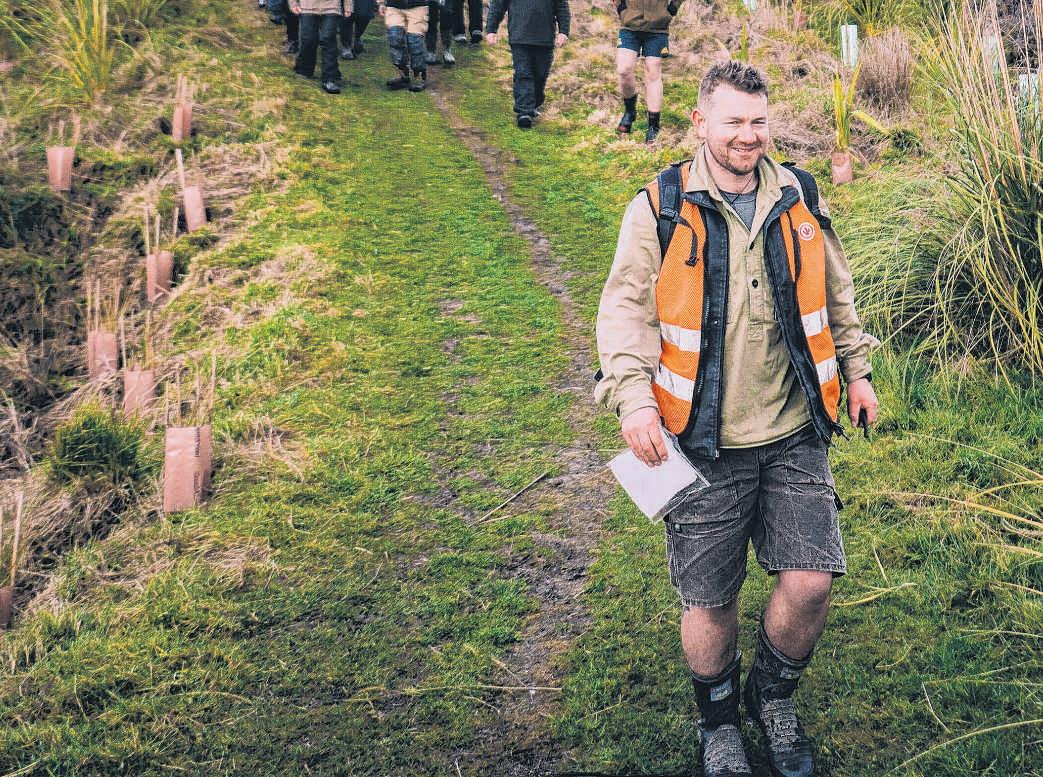
GLEN RILEY Conservationist Otago
ITdescribes itself as asmall company doing big things reviving biodiversity, improving water quality, restoring ecological function and healthy habitats.
The man behindHabitat Restorations
Aotearoa is Glen Riley, who grew up on an organic market garden near the Kakanui River, something which influenced his later moveinto conservation.
For more than adecade, Glen andhis


team have been working closely with farmers, iwi, catchment groups and local and central Government to restore habitats in Otago and beyond.
His nomination cited his knowledge of nativeplants and their role in riparian areas and his use of longlasting plant guards whichincreased survival rates of seedlings and reduced maintenance costs.
As well as planting,the HRA crew undertook weed and pest control, including revolutionary ideas like floating stoat traps and kayaking for willow control to encourage ecosystemwide restoration that could only happen with nativeplants, no weeds and no pests.
‘‘By working with local communities, and employing hard working young conservationprofessionals Glen links people and places to nature. He has been resilient, innovative and collaborative in the space of restoring Otago’s habitats,’’ the nomination said.
Providing habitat made Glen feel goodand he got akick out of seeing places where there were healthy plants, plenty of bird life and streams full of fish.
As well as alove of plantsand animals, he also enjoyed people and working in restoration allowed him the chance to do things with people where the environment was the main benefactor.
He enjoyed working with catchment groups and supporting farmers. Having grown up amid ahorticulture operation,
heunderstood small business and growing food.
HRA could come in and support what a property would benefit from, meaning farmers could concentrate on what they did well and that made real sense in a world where people were increasingly time poor. Everyone wanted the same outcomes, he said.
‘‘We also forget not many of us grow our own food —weneed food. I’m really grateful Ican eat cheese and drink milk and have an icecream Ialso like to swim in the river or kayak in the river without getting sick.’’
At this point, HRA’s work had been from North Otago to Southland and west to Queenstown and Wanaka.
‘‘Work doesn’t come to us, we go to them. We move wherever we need to. It allows us the chance to see some pretty special places and alot of variety.’’
Describing the work as both interesting and rewarding, Glen said the job was not finished, nor would it ever be finished.
‘‘People in conservation often forget, it’s easy to think of things that haven’t been done; we also need to take ownership of what we have done,’’ he said.
He has been instrumental in creating and delivering restoration programmes and outcomes to high profile Otago reserves Penguin Place and Te Nohoaka oTukiauau Sinclair Wetlands, as well as playing roles in other conservation sites around Aotearoa. —Sally Rae

JIMMY JOHNSTONE Accountant Otago
HAVING moved around alot as a child, Jimmy Johnstone was keen to put down roots in one place as an adult.
That place was South Otago, adistrict he first moved to as astock agent and later returned to as an accountant, the rural lifestyle it afforded suiting him.
‘‘I feel abit uncomfortablebeing in the middle of acity. I’m not sure Icould live in an apartment drinking latte coffees. It’s not really me. Ilike open spaces,’’ he said.
Jimmy’s father was abank manager, hence the family’s move every two or three years.
After completing an agricultural commerce degree at Lincoln, his first job was as aWrightson NMA stock agent in Clinton.
He later switched to studying accounting at the University of Otago and spentthree years in alargeDunedin accounting practice and seven years in the rural sector, principallyinrural finance.
In 1991, he joined Balclutha firm Shand Thomson where his wife Susie, who was from the Catlins, was already working.He became apartner in 1999.
Jimmy was widely recognised for his work in the agrisector; as apioneer and leader in key performance measurement, benchmarkingand improvement metrics
for farming businesses and for his wise and practical approach to farm successionsolutions
His nomination said he was highly respectedbyhis clients, professionals and communities inwhich he worked.
His broadagriculturalexpertisewas acknowledged with his appointment to the Institute of Chartered Accountant’s primary sector committeewhere he served for five years.
The Institute (now Chartered Accountants Australia &New Zealand) recognisedhis community and professionalcontributions by awarding him fellowship status in 2006.
As aresult of largescalehealth sector reforms, Jimmyhas along history of assisting communityowned organisations to successfully take over and maintain the provision of health services to ruralcommunities.
‘‘I think it’s really important rural communities have access to health services commensurate with what’s available in urban settings, it just has to be structureddifferently,’’ he said.
South Otago had been very good to Jimmy andSusie and he enjoyed working with ruralcommunities. At Shand Thomson, the team were also encouragedtowork with community organisations.
Jimmy wasthe inauguralchairman of Sport Clutha and served on the Rosebank Primary School board of
trustees. One of his most satisfying projects had been the development of the museum in Owaka, recognised as one of the best small museums in New Zealand.
More recently, he had been involved in an advisorycapacity with the Clutha Community Hub development —a

‘‘fantastic’’ building which was for ‘‘everyone’’ in the Clutha district.
South Otago was not alone; other rural communities were filled with ‘‘really good people, all working to do their bit’’.
‘‘That’s what people do, roll their sleeves up,’’ he said. —SallyRae



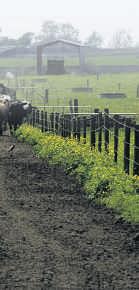



GREG AND DANSY COPPELL
Fencepost suppliers Tasman
THIS is the story of an accidental business.
Repost —which turns treated timber waste from vineyards into lowcost fence posts —was born

inadvertently when Greg and Dansy Coppell needed to address afencing problem on theirStArnaud farm.
The couple boughtthe 500ha property about nine years ago and needed to fence it to help improve both stock managementand pasture control —but the couple were on atight budget which did not include brandnew fence posts.
Greg’s father Allan had used discardedvineyard posts for decades on his farms andsothe couple found a stockpile of posts at aMarlborough vineyard andspent days picking over it and loading up atruck, returningtothe farm to repurpose the broken posts.
Before theyknewit, farming friends around the country were asking for a unitloadofposts and —nek minnit, as the saying goes —they had afencepost business.
Greg and Dansy’s nomination said Repost was working at reducing the treated timber from vineyards and repurposing them into affordable fencing for farmers.
Their innovation in sustainability was helping save the environment and farmers’ budgets.
‘‘They have astrong community mindset andare actively taking part in initiatives to help farmers.’’
The viticulture industry disposed of thousands of tonnes of durable wood into landfills each year and Repost wasnow changing one of the industry’s largest waste issues.
Since its launch, Repost has saved more than6500 tonnes from landfill and fenced more than 6200km, including on the North Island’s East Coast in the aftermath of the devastating Cyclone Gabrielle in February last year.
Initially, the couple were told that Repost would not work on a commercial scale
But, as Dansy said, there was nothing afarmer liked to be told more than that he could not do something.
Dansy particularly liked the number of repeat customers, as well as the wordofmouth referrals.
There were also catchment groups and other rural neighbourhood groups that would order aunit load and there was a‘‘feeling of community coming together to make it happen’’.
The couple’s aim was to keep the business low key but be acompany that everyone could relate to —‘‘doing somethingthat helps everyone’’.
Greg, who still also has abuilding business, met Dansy at aKiwi barbecue in London. She recalled him in his stubbies, cooking sausages.
She grew up on alifestyle block in England and hated living in the city ‘‘I’m acountry girl by heart’’.
When she moved to New Zealand with Greg more than 10 years ago, she was working in earthquake recovery work in Christchurch and Greg was building, and they wanted to get back to rural living.
Quipping he was ahermit who liked being up agully, Greg had apassion for farming albeit he had not had agreat deal of time recently for that.
‘‘The farm will be there, it’s going nowhere,’’ he said.
And the concept of Repost was really nothing new in the farming world.
Rural communities had been living and breathing the circular economy for 150 years, he said. —Sally Rae
SIOBHAN O’MALLEY
Dairy farmer
West Coast
SIOBHAN O’Malley reckons she’sa
‘‘jack of all trades,master of none’’
The humble mother of three owns a dairy farm with her husband Christopher near Hokitika and despite growing up a‘‘town girl’’,she has embraced the rural sector and has become afiercely loyal advocate for it.
Siobhan’s nomination said she was a wellknowncampaigner for the rural sector. She cofounded the Meat the Need charity andmore recently colaunched the innovative knitwear company Hemprino.
She and her husband sat on several community organisations,‘‘and she is one of those people that say yes to everything’’, the nomination said.
Siobhan graciouslyaccepted the nomination but was quick to addshe was not perfect.
‘‘I don’t have abig garden or an immaculate house. It’s justnot where my priorities lie.’’
Her involvementinthe wellknown Meat theNeed charity came about while the couple were on their journey to farm ownership.
‘‘We moved around alot as sharemilkers and ended up in the Tasman region, which is where Igot to knowWayne Langford.
Wayne had this vision and Igot on board to help him make it happen. New Zealand grows so much food it just doesn’t compute that there should be Kiwis that are going hungry.’’
Over four years, Meat the Need has

gone from strengthtostrength. It supplies foodbanks around the country with packaged mince and recently added milk to its offering.
SIMON DAVIES Sheep and beef farmer Otago
SIMON Davies has never been afraid to askquestions, speak up and be heard.
When opportunities for leadership in the rural sector havepresented themselves, he has taken them.
The nomination for Simon said he works tirelessly for the good of the local and national farming community.
He chairs the South Otago River Care catchment group and the Clutha DevelopmentTrust.
‘‘Despite sheep farming being atough gig at the moment, Simon still puts his hand up to lead organisations that work for the collective good.
‘‘Our community absolutely needs people like Simon to take the lead.
He is always wellprepared, punctual and inclusive,’’ it said.
Simon farms 8500 stock units on 1000ha of effective land with his two daughters and wife Jo at Toko Mouth.
He wasencouraged into governance by the late Terry Brosnahan, editor of CountryWide for many years
‘‘We were at an AGM of some kind,I guess Iwas asking my fair share of questions.
‘‘I have always figured that if Iam questioning something in my head, then chances are other people in the room are thinking it too, and Ihave no trouble being that person who speaks up.
‘‘Terry came up to me afterwards and asked if Iwas journalist and when I said Iwasn’t, Iwas justapassionate sheep farmer, he said Ishould think about using my skill set in agovernance
role.’’
Heeding Terry’s advice, Simon underwent aleadership course sponsored by Federated Farmers and 18 months later became president for the Otago branch.
Simon said governance roles were not for everybody.
‘‘It can be dull, dreary policy work but it’s critically important. It’s alot of work thatgets you little recognition and can be thankless.
‘‘You need passionate people in these rolesadvocating for the industry so that people higher up the chain making decisions about agriculture in this country fully understand.
‘‘Being the farmer’s voice is so important and Ihave made it my mission to offer pragmatic, solutionfocusedoptions.’’
Despite beingopen to new governance roles in the industry, he didn’t get them all, he said.
‘‘I don’t playgames to get the job which sometimesmeans Idon’t always succeed, Iwon’t compromise when it comes to maintaining my integrity, accountability and honesty.’’
Calling a‘‘spade aspade’’, he has developed his leadership style over time.
‘‘I have probablydampeneddown my blunt approach over the years.’’
Communication is the most important aspect of any form of leadership, he said.
‘‘It is key. It develops relationships and gives people the ability to question things.
‘‘Informedpeople are always more useful than uninformed people,’’ he said. —Alice Scott
‘‘I helped set up the strategy and governanceofthe charitable trust and worked on the logistics,making sure it was extremely easy for farmers to donate
and extremely easy for food banks to accept. For example, the staff and volunteers that run the food banks can’t be expected to lift big heavy boxes, so we keep the packaging under 12kg.
‘‘The way the country has embraced the charity has been phenomenal. We have achieved in the last three years what Iexpected might take five to 10 years to do. But there is more demand than there is supply —westill have around 100 foodbanks on the waiting list.’’
Now the trust was set up and ‘‘ticking along nicely’’ shehad stepped back from her involvement to focus on anew business called Hemprino,which she launched with Harriet Bell and Paul Ensor whom she met while doing the Kellogg Rural Leadership Programme in 2018.
‘‘Hemp is extremely strong and holds its shape so replaces the need for polyester in agarment. Combined with the merino we are producing warm, sustainable New Zealandmade garments.’’
Asked howshe achieved so much while also being involved in the dairy farm with her husband, amother to three children and working full time as a teacher at Westland High School, Siobhan said it was about doing things in small and achievable bitesized chunks.
‘‘I don’t watch television at night. Iwill use that time to write an email or do some research. Istill get imposter syndrome and feel out of my depth at times, but it’s allgrowth. All those little pieces snowball and suddenly you realise you are getting somewhere,’’ she said. —Alice Scott
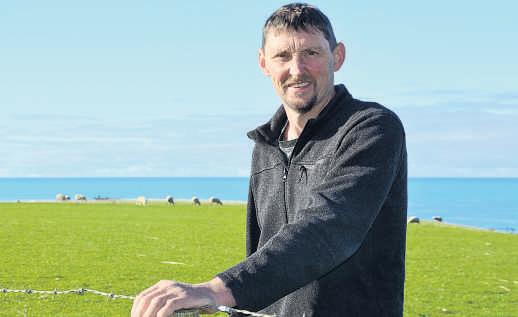











RUTH STEELE Farmworker Southland
‘‘YOU don’t necessarily have to own afarm to enjoy farming ’’
Farm worker Ruth Steele is proof of that, having been been involved in the rural sector since leaving school, despite not comingfrom afarming background
Ruth grew up near Mosgieland always enjoyed being outdoors; that has never changed —give her ajob outdoors, rather than indoors, any day of the week.
Back then, having friends on farms meant holidays were spent in the country and she loved it. When it came time to leave school, she was adamant she wantedtowork on afarm.
Ruth spent ayear at farm training instituteTelford —the only female student that year —asitwas very difficult to get ajob without experience
She got ajob on afarm in West Otago, and later worked on aManiototo property, worked on askifield, did some farm work in Australia and then had a stint at the Fortex meat works as ameat grader to earn money to go on her OE.
She ended up in London, which she did not particularly enjoy, and was a supervisor at alettuce harvesting business, before heading to Scotland for five years. She worked as ashepherd in the Borders and really enjoyed it. She was preparing to come home when she met her now husband.



His family farm was not big enough to support another family so they decided to return to New Zealand after marrying, and the arrival of three of their four boys in Scotland, to try dairy farming. That took them to Oxford, theWest Coast and finally Southland.
They now live near Greenvale and Ruth does relief milking and other farm work, including shifting break fences —‘‘I’m the king of the fences’’, she quips —while her husband has alawnmowing and gardening businessinTapanui.
While three of their sons have left home, the couple havea highneeds son Murray who is at school at Blue Mountain College and they care for him between them. During school holidays, Ruth takes him onfarm and he loves it.
The nomination said Ruth demonstrated strength and determination and, with the challenges she faced each day,her commitment to her work was devoted.
It also said she showed strength in responsibility, trustworthiness and reliability in her work and she was well liked and respected in the community.
‘‘She grows all her vegetables, composts, grows amagical garden, preserves, makes jam, chops wood, bakes and really cares about the animals.’’
After all theseyears, Ruth still enjoyed working with animals and being outside.
‘‘I just couldn’t imagine myself doing anything else. Ijust like getting out on the bike and having adog just the freedom.’’ —Sally Rae























RON ALDERTON Sheep farmer Otago
IN1979, aged 28, Ron Alderton had saved $60,000 and managed to buy his first farm, in Waitahuna near Lawrence.
Ron’s nomination said he was agood example of someone who had not only achieved farm ownership under his own steam of frugality and with an eye for efficiency, but also he also the family’s land holding over time with the purchase of three additional farm blocks.
The nomination said he has also been astrong community man as amember of the Lawrence Lions Club for 42 years and became involved at a high level as the district governor.
He has battled agenetic back issue which could have ended his farming career had he not been proactive and thorough with his surgeries and rehabilitation.
Ron and his family are hardworking and have astrong desire to care for their properties using sustainable farm practices.
Unapologetically from the ‘‘old school of thought’’, Ron and his wife Carol have successfully sheep farmed through the highs and lows of the industry over the decades.
Ron was one of five children and grew up on afarm in West Otago. Dispersal of his father’s holding in the farm was divided five ways which gave the couple asmall hand up but the bulk of their first farm deposit came from their hardearned savings.
‘‘We went into the farm with 38% equity and lived very frugally in order to pay the farm off.’’
He credits his wife Carol for her thrifty mindset.
‘‘We are very much ateam with the same vision, we are not wasters,’’ he said.
Carol has enjoyed her life as afarmers wife, ‘‘keeping the vegetable garden full and
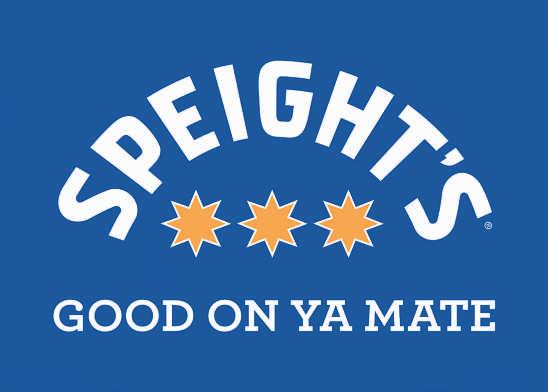
making do with what we have around us’’, she said.
‘‘There is something to be said about being there to support your husband; being on call to help when needed.
‘‘I think many women nowadays feel this pressure to be asuperwoman with their own careers.
‘‘Farming is not a9to5 job; it is relentless, and Ihave always believed the backup support we as farm wives offer is very important.’’
In 1998, the couple had paid off the first farm and had saved enough capital to buy a second block with a50% deposit.
Ron lifted production significantly over the seasons and the property was paid off after three years. Athird farm was bought in 2011 and the fourth four years ago. Each average about 300ha in size.
‘‘Farming has been alittle more frustrating lately, with a few dry seasons, we have had to drop capital stock numbers.
‘‘It’s certainly adifferent place to be in compared to what we have been used to, but we’ll get through, things will come right,’’ he said.
The couple’s sons Bruce and David and their families now also farm alongside.
Each of them oversee the daytoday management of their own blocks and they talk regularly and help one another out with the big jobs.
‘‘We do as much as we can inhouse. For example, we have two sheep handlers for weighing and crutching.’’ Forestry is alarge component of the farming business and over the decades they have planted atotal of about 140ha of the steep faces and gullies into trees, doing the pruning themselves and eradicating the broom and gorse with aknapsack and sheer hard slog.
‘‘A solid day or two on the end of aknapsack, you can achieve alot,’’ Ron said. Alice Scott
KATHRYN WRIGHT
Rural mental health counsellorand researcher Southland
GROWING up in Te Anau, where her father was one of the venison recovery aviation pioneers, Kathryn Wright experienced alot of peripheral loss.
Deaths from air accidents in Fiordland during the Deer Wars were common and she knew many of them, something whichstayed with her.
Initially, she had acareer in hospitality and spent 10 years as a professional cake decorator but, about adecade ago, she decided she wanted to ‘‘do something more’’.
Having been good at writing and English at school and always interested in how people thought and psychology, she enrolled in adouble degree at Massey University in psychology and sociology, studying from home.
It was during that time she realised there was aproblem with rural mental health and, as afarmer’s wife living on abeef and deer farm, it was anatural progression to start working on that topic.
While commodity prices and the weather all affected farmers, that was not the main demographic or problem; it was young men in the 18 to 30 age group, mostly concentrated on 18 to 24yearolds, she said.
Kathryn dived straight into asocial services degree in counselling to becomeacounsellor and then decided more needed to be done.
‘‘Somebodyneeded to research why these young men are dying, what is happening that they feel they can’t get help?’’
Her masters research was on barrierstoyoung rural men seeking help. Now she is doing aPhD through the University of Otago on the mental health of small rural communities and what helps and harms them, something she described as her purpose.
Kathryn wants to be able to ‘‘make a change and leave amark’’.
On the surface, her previous career as acake decorator and her current roles might seem roads apart, but both have an artistic element.
‘‘I need to thinkoutsidethe box, I needtothink of different ways to reach people who are hard to reach, make use of my knowledge.’’
‘‘I get ahuge amount of satisfaction from the different roles Ido, Ilove what Ido,’’ she said.
She understood farming,living in an isolated area and that farming and

home and family were so interconnected —‘‘someone in an office in Auckland may not get that’’.
‘‘I believe farming is aculture it’s away of being, of people and traditions
and land and history.’’
Kathryn was the 2022 recipient of the EducationalExcellence Award for Otago Polytechnic for her research on young rural men andin2023 she was
Landpro is honouredtosupport the2024Otago Daily Times and Rural LifeRural Champions Awards. Theseawardscelebrate theSouth Island’sRural Champions, individuals whotirelesslyworktocreatebetterenvironmentsand stronger communities.
AtLandpro, we believe thatbetterenvironments lead to better returns. That’swhy we proudlystand behind these champions who aremakinga real differenceintheir communities. Thankyou forall that youdo.


JEFFREY AND ANDREA BRUCE Strawberryand vegetable growers South Canterbury
AT3.30am on aSaturday, most people are happily snoozing.
So spare athought for South Canterbury couple Jeffrey and Andrea Bruce who are up early every weekend to head to the Otago Farmers Market laden with produce grown on their Willowbridge farm.
Their nomination said the couple’s horticultural skills and commitment to the Otago community was outstanding and deserved acknowledgement.
‘‘Because they get up so early each week, city dwellers like us can enjoy delicious, nutritious, superfresh vegetables. Andrea and Jeffrey have introduced a selection of vegetablesina reusable fabric bag, this is such a good community initiative for people living alone or to provide agift to family members.’’
Jeffrey and Andrea’smain crop is outdoorgrown hydroponic strawberries, a growing operation which came about by chance when one of their potato brokers, who was growing hydroponic strawberries in Nelson, suggested they get into it.
They got such agood response that they kept increasing plant numbers. They now have 48,000 plants and there are plans to take that up to about 120,000 over the next two years.
The strawberriesare grown on outdoor racks made from recycled posts sourced directly from vineyards.
While the soil in the area was
excellent, and it seemed ashame to grow the berries above it, it was the most efficient way of picking,Jeffrey said
The Bruces also grow vegetables, including carrots, potatoes, onions, brassicas and other greens.
When they started their growing venture, it seemed as if there was more opportunity and positivity than grain farming, he said.
Jeffrey and Andrea attend the Otago Farmers Market, their daughter Rebecca does the Geraldine summer market, and grandson Blair does the Waimate market. They are hoping to establishanonfarm stall on their property this year.
The couple had been selling potatoesand carrots to supermarkets for along time and during their first year at the Otago Farmers Market they only sold vegetables.
It was agood venue for selling smaller lines that supermarkets could not take while the interaction with the customers was something the couple particularlyenjoyed.
While it might mean getting up at 3.30am or 3.45am, Jeffrey describeditastheir day off the farm. They were never in arush to leave the market —oftenthey were last to leave.
They loved the sense of community at the market and how customers would turn up to buy half adozen onions and a bag of spuds even if there was sideways hail. During summer, when they were setting up at 6.30am, there were already customers turning up. —Sally
Rae


JOSH BROWN Environmental consultant Canterbury
JOSH Brown is following in the footsteps of hisfather Ian who spent decades working with rural communities and trying to get better environmental outcomes.
‘‘He spent most of his career in different regional councils,most of that working directly with farmers and somehow.
‘‘I don’t know if it was intentional or not, Iended up doing something very similar,’’ Josh said.
After working for Ballance in itsenvironmental sustainability team and acouple of years as a representative for a pharmaceutical company working in animal health,he became involved in the Hurunui District Landcare Group.
Established in 2016,HDLGis an independent catchment group of more than 300 North Canterbury farmers
It is run as an incorporated society to support farmers as they navigate an increasingly complex operating environment while protecting their land, water and native biodiversity for
future generations.
His nomination said Josh had rallied together and led the farming region through several challenges, both environmental and regulatory.
‘‘He has acalm and articulate manner and exterior that hides his enthusiasm and courage to take on the hard topics.
‘‘He leads by example, both in and out of the meeting room, and has given so much to our region in his role as [the group’s] facilitator and project manager.’’
‘‘Josh has built afantastic team around him who have delivered pragmatic and purposeful solutions to farmers in our region to help create educational and engagement opportunities while developing more sustainable and resilient farm systems.
‘‘His ability to reach across meeting tables with clear and sincere messages has helped to bring together various parties.
‘‘Hehas been acatalyst for continuous progress in our region and his lead has led to a range of wellfunded and resourced projects in our region that weren’t even considered before Josh’s appointment.
‘‘Josh and his team have
created awonderful culture for HDLG, and often it is the small things thatmatter, taking the time to meet around the farm kitchen table, the genuine interest they take in our families, farms and business, andmost importantly, their understanding that as farmers we often can’t separatethese aspects of our lives.’’
Josh is director and consultant at Rural Consultingwhich works with farmers, catchment groups, iwi, central and local government. With acompetitive streak, Josh liked ‘‘setting out to do somethingand winning’’ —and there had been avariety of wins with HDLG, including successfully getting aplan change and being able to draw in alarge amount of funding. If the group was not there, then Environment Canterbury would not be running ahill country erosion project,and that was just one example of what could be done with catchment groups.
Modestly describing himself as ‘‘just acog in these processes’’, Josh said acollective approach was needed to address issues.
Sally Rae
LUTTE THYS Farm consultant Southland
SHE may have travelled and worked around the world but there’s no place like home for Lutte Thys.
Lutte joined MilkMaP’s Southland consultingteam in 2022, armed with plentyof early exposure to the global dairy industry.
Having grown up on her family’s Awarua dairy farm in Southland, where she was heavily involved in the farming operation —she was in the cowshed before she could walk —she set up aTeenAg Club while at school at James Hargest College in Invercargill.
She completed ascience degree at Massey University, majoring in agricultural science and minoring in animal science.
But she felt she wasnot qualified to tell people how to do their jobs until she had experienced some different farming systems so she moved to Canada for 18 months to work on dairy farms which were indoors.
From there, she moved to Costa Rica for athreemonth internship on tropical dairy production which she described as the best experience in her life.
Returning home for 10 months and working on a nearby dairy farm, she headed overseas again to complete a master’s degree in animal science from Wageningen University in the Netherlands.
Her studies focused on two research projects examining the limitations of dairy cow production and reproductive performance across multiple countries and farming systems.
That included her thesis on dairy farming in Ethiopia where she went for several

months, looking at the limitations to the industry there and the uptake of technology.
It was not the easiest of
experiences, she said. Returning home due to Covid19 —she presented her thesis from home.
She then started looking for
jobs and adesire to help people led to her career path.
She worked at New Zealand Animal Evaluation during the development of the new BW
(Breeding Worth) System, based in Hamilton, on a 12month contract.
By then, she decided she wanted to return home because her partner, whom she met while studying in the Netherlands, had been granted avisa and had ajob in the South.
That was when she joined MilkMaP, in arole which was all about helping farmers to get the most profitability out of their system and to get the most out of their cows. For Lutte, it is adream job.
‘‘I don’t like telling people. I like teaching but Idon’t want to teach high schoolers. Iget to do this in my job and help people.’’
She thrived best in discussions where ideas were bounced around and she loved seeing farmers and their staff getting excited about those ideas.
She particularly enjoyed when farm staff were involved in meetings and showing them the reasons behind why they were doing what they had been told to do and what it meant.
Her nomination said Lutte thrived on helping people achieve their dreams and looked after their wellbeing too.
She was also passionate about getting young blood and enthusiastic young energy into the farming sector.
Lutte lived on the farm —she felt lucky to work from her office and look over the property —and loved being part of the neighbourhood.
Her partner, who is from Tanzania, was passionate about farming and loved the South even if he was wearing three jackets over winter.
‘‘I wouldn’t live anywhere else in New Zealand,’’ she said.
‘‘I’ve tried the North Island. There’s nothing wrong with it it’s just not home.’’ —Sally Rae
KATRINA SIMPSON
Livestock representative West Coast
‘‘EVERYONE says to me, ‘I don’t know how you do it’ —you just do it.’’
Katrina Simpson goes to great lengths for her family —literally.
Living on the West Coast, and with three very sporty children, meant she was often on the road travellinglong distances.
But the Silver Fern Farms livestock representative saidshe was ‘‘all for sports and activities’’, saying it was so good for their personal wellbeing and growth.
‘‘If you want your kids to do stuff, then you just have to do it,’’ she said.
Originally from Montalto in Canterbury, Katrinaattended boarding school in Timaru before completing an agricultural science degree at Lincoln University.
From there, she joinedPGG Wrightson’s trainee scheme which covered all parts of the business, from livestock to real

Just
estate and retail. She was posted to Whangarei before transferring to the West Coast in 1995 and she has remained there.
Katrina now lives with her three teenage children on a54ha farm at Rimu, just out of Hokitika,which she farmed herself prior to leasing it when lifegot abit too busy
She joined Silver Fern Farms in 2013 after returning from maternity leaveand she acknowledged it was amaledominated job then and it still was today.
‘‘I love my job.Iwouldn’t want to do anything else and Ilove the farmers and Ilove being over here.
‘‘When Ifirst came over here, a
lot of grads, whether bankers or farm advisers, came to the Coast and did ayear and thengo somewhere else. Icame here and then never left.’’
Aprevious finalist in the Dairy Women’s Network community leadership award, Katrina is a former DWN regional convener for the West Coast.She and her former husband previously worked in the dairy industry, 50:50 sharemilking.
She has been involved as a judge for the New Zealand Dairy Industry Awards, an event the couple previously entered when farming, and she saw judging as away to give back for what they got out of it. She is also passionateabout seeing young people get involved in farming.
Katrina is chairwoman of the Ospri West Coast TbFree committee. When she first joined the committee, there were more than 200 infected herds and now it was down to one which was ‘‘amazing’’.
Now the key was to keep it at the forefront of people’s minds, she said.
On the sporting front, Katrina
is registrar for the West Coast Hockey Association and compiles the hockey draw, she is the local Hokitika Hockey Club president and manages ayouth collegiateteam.
With her daughter in the Tasman under18 hockey team, weekends during the season were spent travelling to Nelson or Marlborough for training. She is also on the Hokitika netball executive.
She is also group leader for the Greymouth Scout Group and is involved with fundraising for a jamboree in Australia next year which two of her children will attend.
Asked whether she ever had time to herself, Katrinalaughed how she decided to start swimming during her many trips to Greymouth—but there was always some stock to look at or groceries to buy, so she still had not made it to the pool. But she was not fazed about that.
‘‘They [her children] are not going to be this age forever. in acouple of years, Iprobably will be saying, ‘oh my God, what am I going to do?’’ —Sally Rae
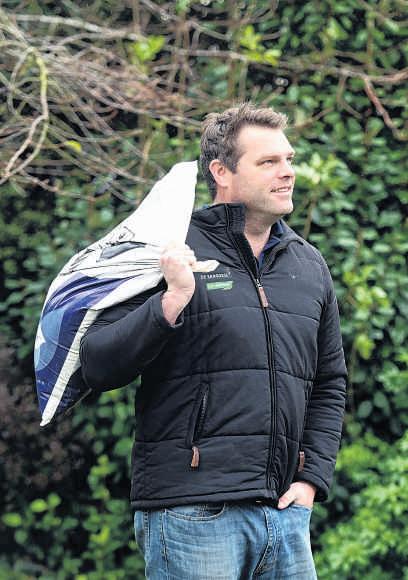
KIERAN FOWLER Salesmanager Otago
GET moving.
ForDunedin’s Kieran Fowler, physical activity has helped improve his mental health and he encourages anyone else who might be struggling to try it.
Kieran, who has the distinction of holding aNew Zealand record forgumboot throwing (55m) and is aformer world champion in the sport, has overcome depression.
His wife Julia said she was very proud of his journey and the personal development he has achieved battling the disease.
Kieran, who grew up on a sheep and beef farm in Mid Canterbury, has represented New Zealand in athletics at two world championships (Morocco
in 2006 and Beijing in 2008), and also played rugby for Otago Band Otago Colts.
His first job was with CRT (now Farmlands) in the grain and seed store, packing seed orders. Being acountry boy, he worked his way through to being on the road as atechnical field officer.
‘‘It’s pretty easy talking farming, I’ve done it my whole life. You may as well get paid to do it,’’ he laughed.
Enjoying the agronomy side of farming, he joined French firm De Sangosse in 2020 as lower South Island territory manager and last year became sales manager for Australia and New Zealand.
He still plays some ‘‘old man’s rugby’’ for Kaikorai and is still an opengrade discus thrower, ranked second in the country.
The new season will be his last as he concentrates on coaching athletes, several of whom have represented New Zealand.
He is involved in his three children’s activities —‘‘I don’t coach their rugby because there would be too many arguments’’ —including coaching his elder two at athletics.
Kieran was grateful to have found what worked for him to help his mental health —‘‘I’m not atalker, you’d never get me to go to therapy’’ —and he urged others, particularly young shepherds who often lived remotely, to find some sort of activity that suited them.
‘‘It doesn’t have to be rugby. Go play bowls. You’ve gottodo something,’’ he said.
Julia described her husband as ahard worker.
‘‘He always manages to make time for our children despite having to travel alot for his job which canbevery lonely at times. Iamsoproud of Kieran and how far he has come in his professional career.’’ —Sally Rae
Gumboot throwing something he came across at a show and was egged on to give it acrack —was on the backburner, although he had given a demonstration at his children’s school on Gumboot Friday.
BLAIR AND JESSYOUNG
Fitnessstudio owners
Otago
‘‘WHO would have thought you could have ajob that doesn’t even feel like ajob?’’
Jess Young is talking about the Shred Shed, afitness studio she opened with her husband Blair in acorrugated ironcladshed at the Tapanui
showgrounds in January last year. Their nominator said the couple had done an ‘‘amazing job’’ of providingaservice to the rural West Otago community to get people out and about and exercising in a safe environment and space where they could connect with others.
‘‘They are providinga variety of classes to cater for all ages

and stages and the update has been incredible due to their openness and embracing attitude.’’
Jess said the aim of Shred Shed was to bring communities together through group sessions by motivatingand encouragingpersonal wellbeinginafun and positive environment.Classes focused on workouts for all fitness levels and age groups.
The successofthe Shred Shed had exceeded her expectations and the demographic it was attracting was not what she had initially envisaged. Young people appeared not particularly bothered by their health but older people had ‘‘taken it on board massively’’.
❛ Ilove it. It’s given people so much confidence just coming to the gym
It was inspiring to see some of the older members of the community, up to about the age of 86, coming along to classes. There was agreater awareness of how important it wastokeep active, and particularly the importance of strength training.
Rather than focusing solely on weight loss, it was more about mobility ‘‘and just being able to live’’. There were women who had not yet reached their 60s and had trouble getting off the ground ‘‘‘it shouldn’t be like that’’ and she loved seeing their progress.
Shred Shed was intentionally acountry gym with adowntoearth atmosphere. Having felt
insecure at other group training gyms, Jess said she wanted to create asafe space for people to feel welcomed and not judged. ‘‘I love it.It’s given people so much confidence just coming to the gym,’’ she said.
She was keen to build anew shed to housethe business and, eventually, she reckoned franchising thebusiness was a possibility, to bring other rural communities together. Blair, better known by his nickname Tubby, takes acouple of classes aweek. The Heriot Rugby Club stalwart —who came up with the business name —has finally hung up his boots after notching up his 300th game for the club last year.
—Sally Rae



